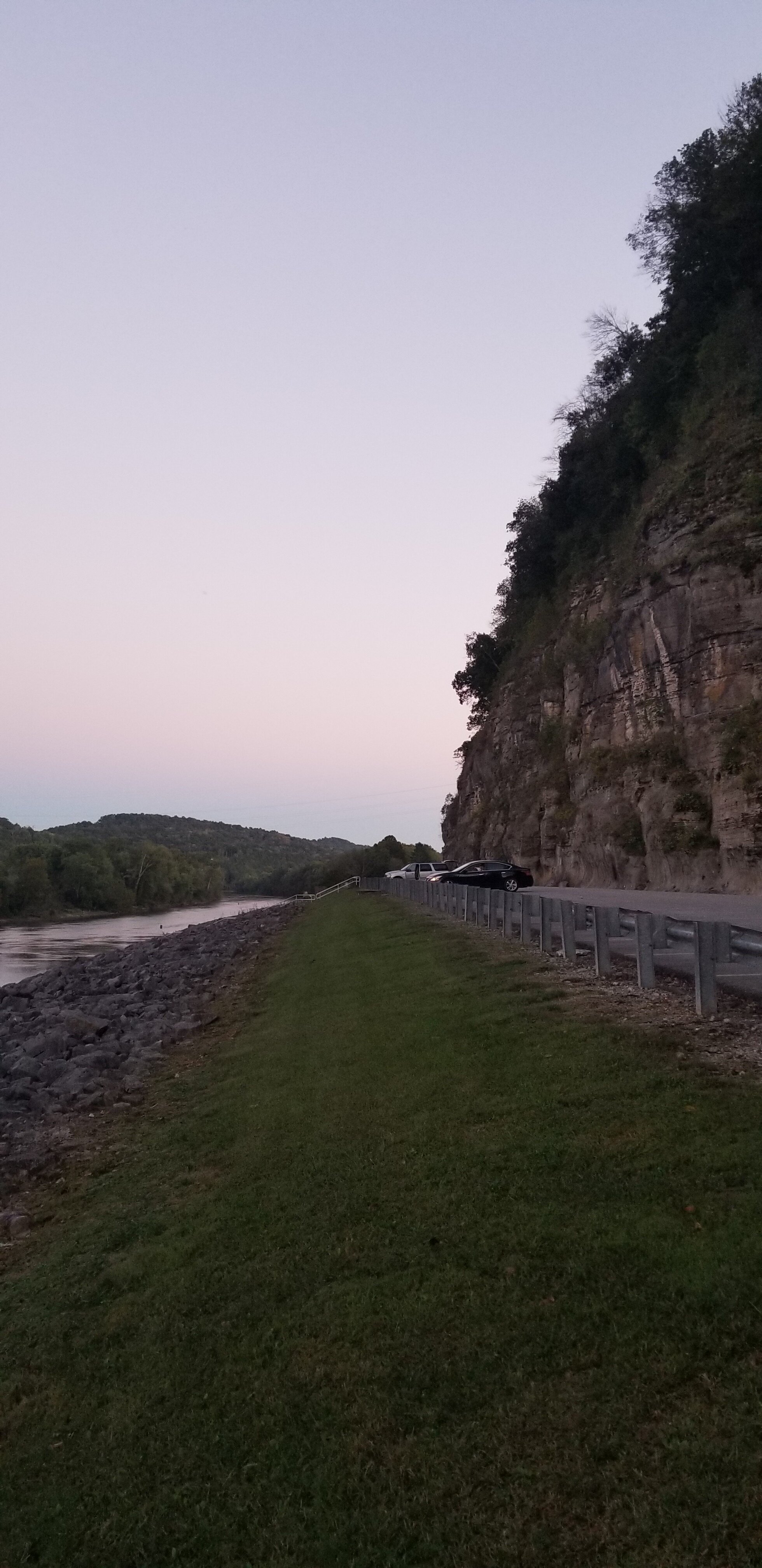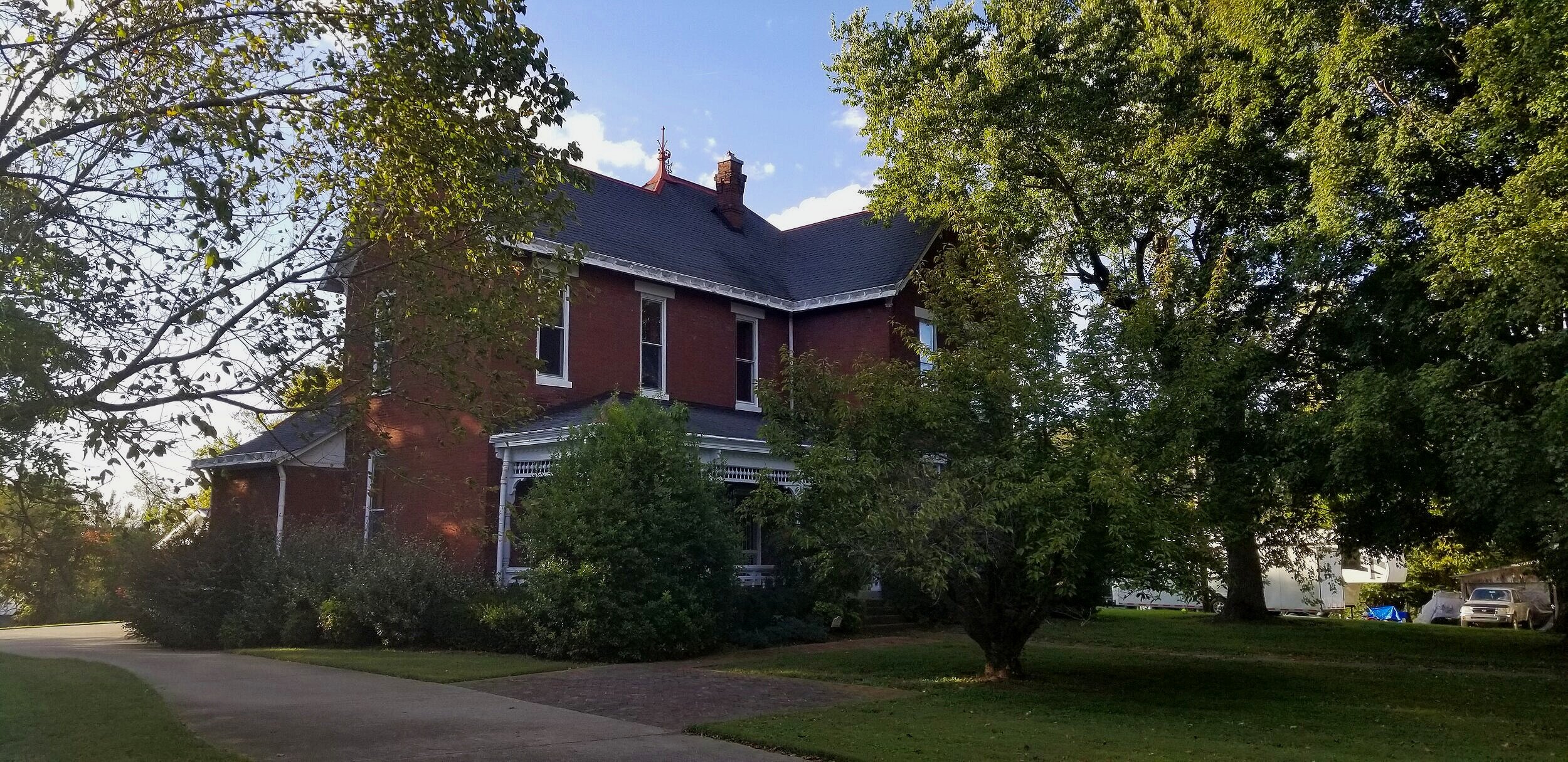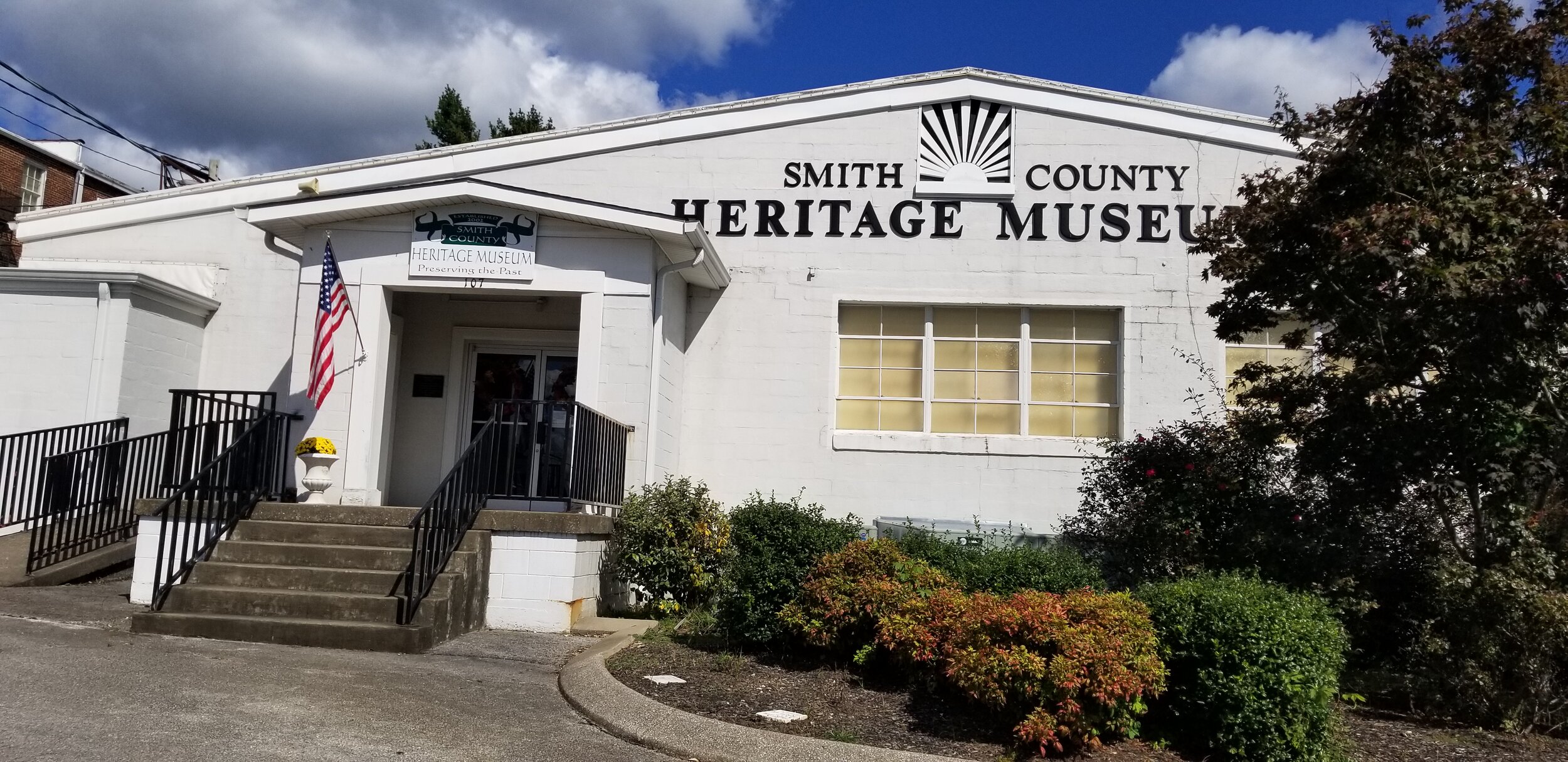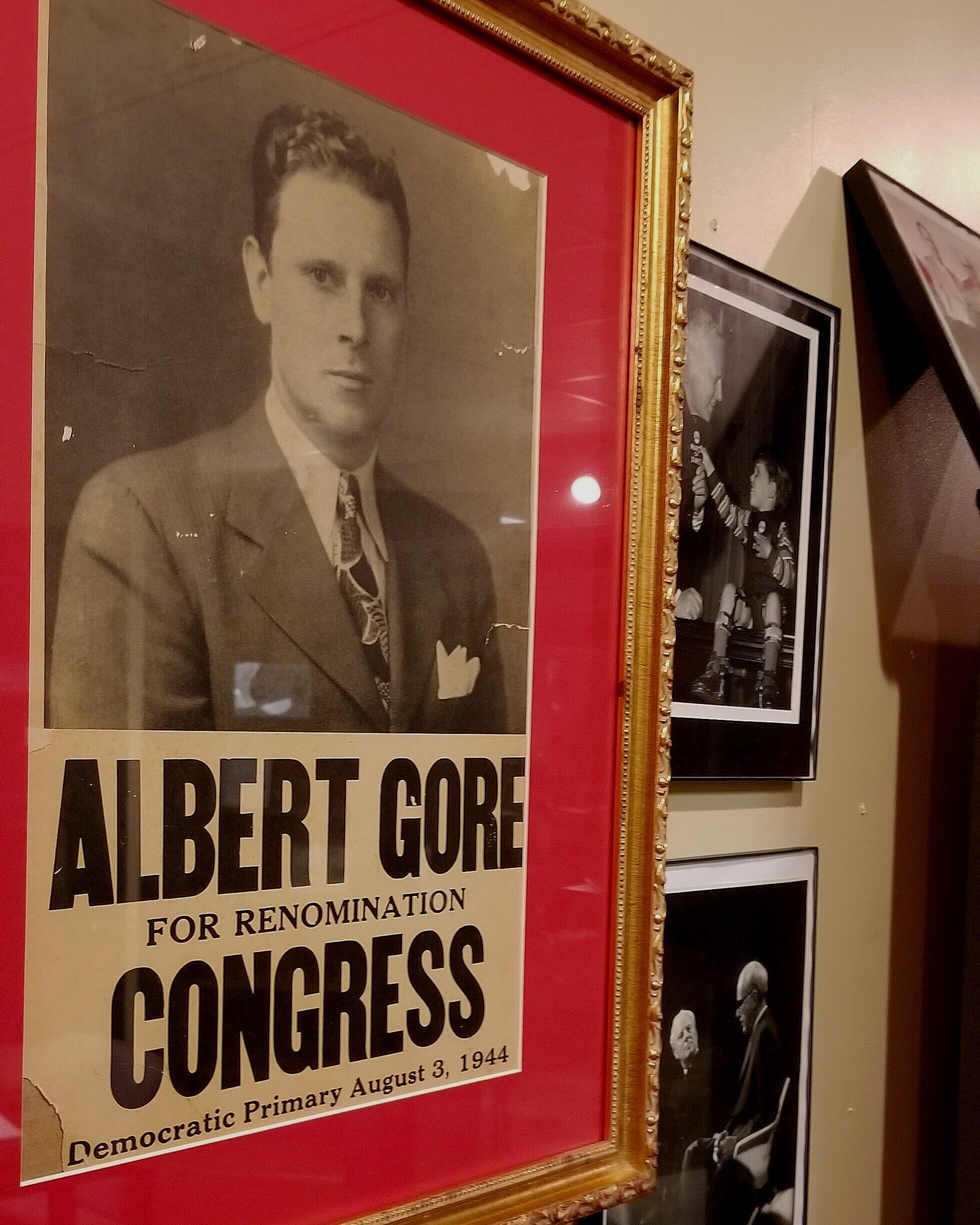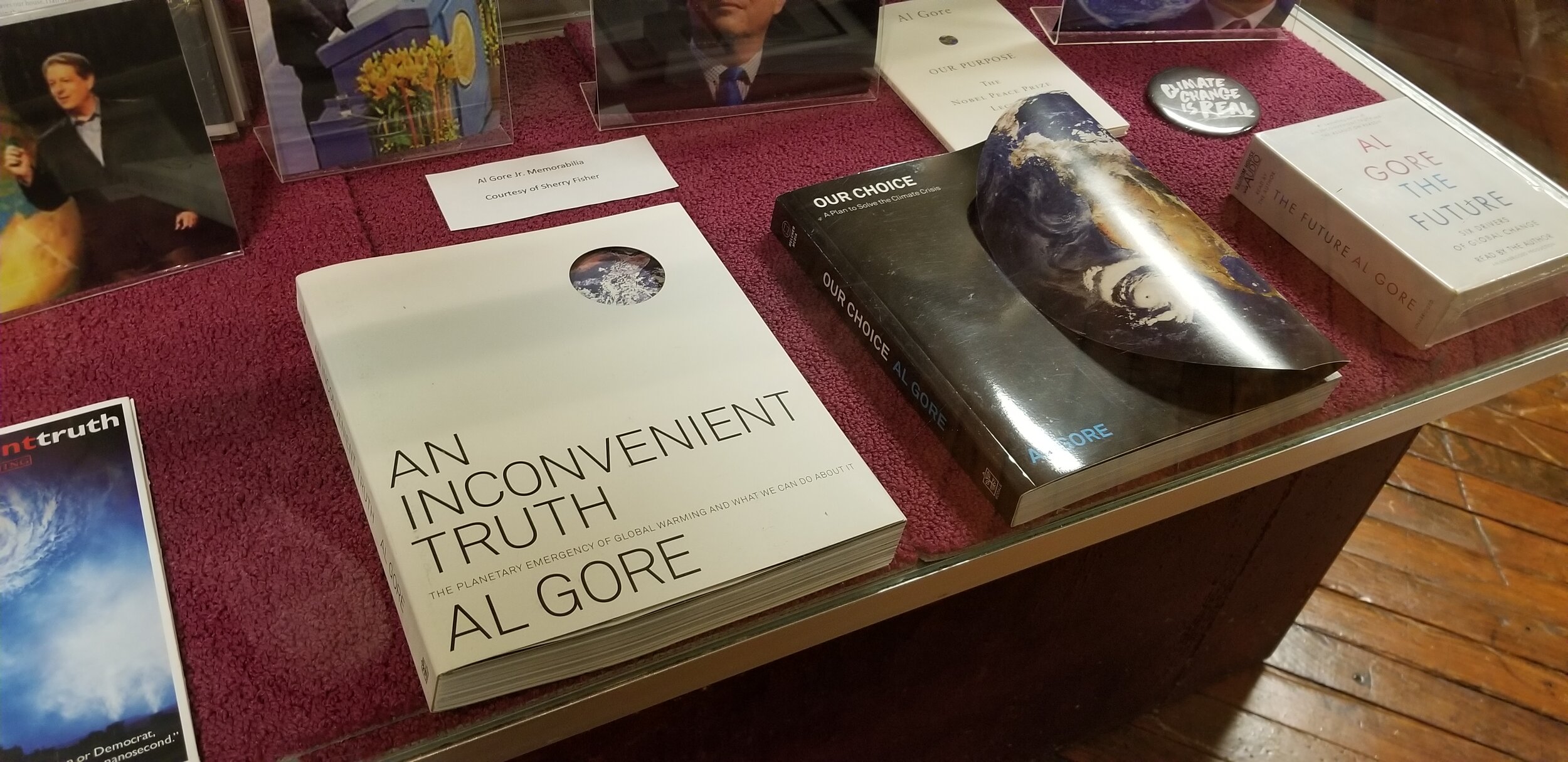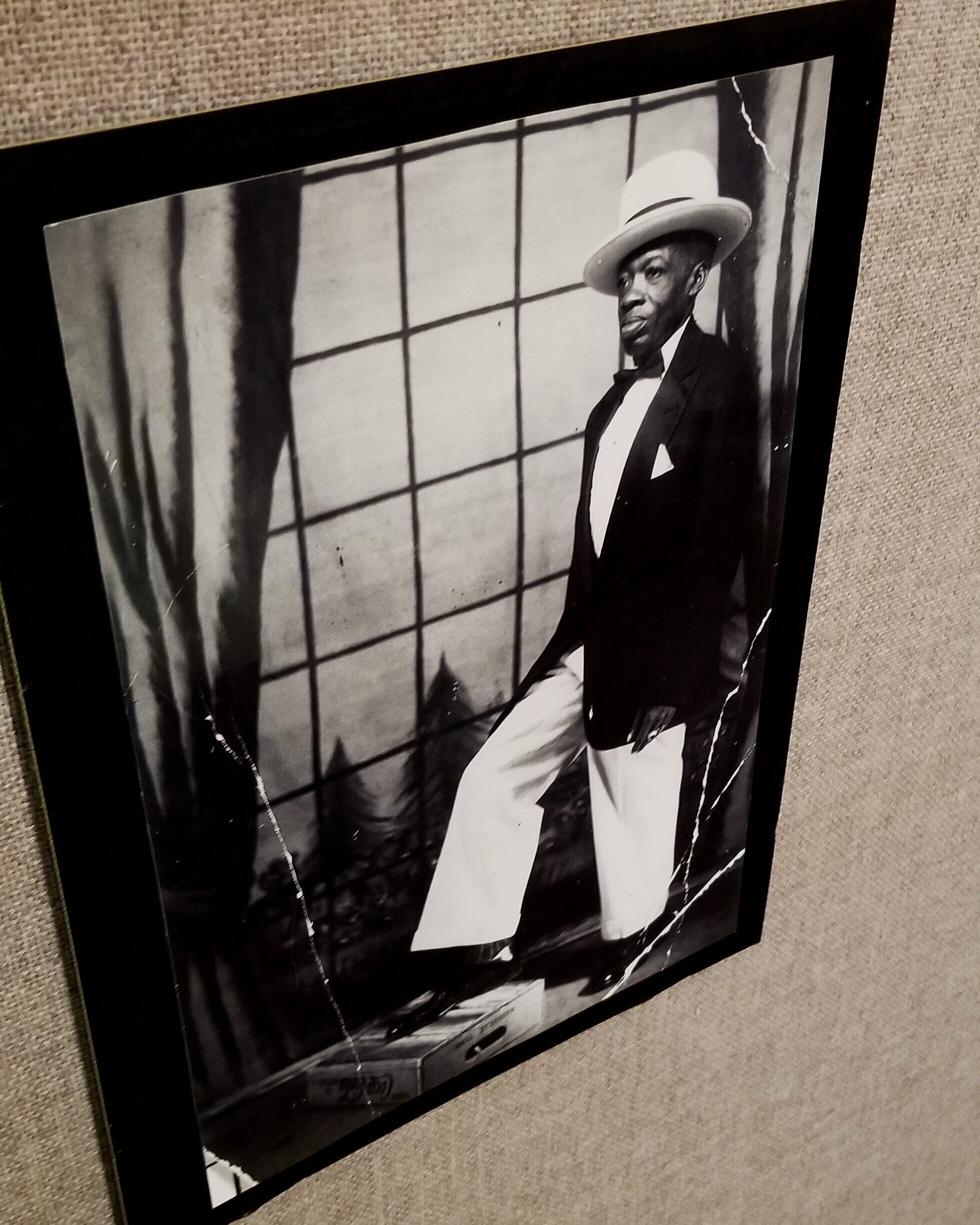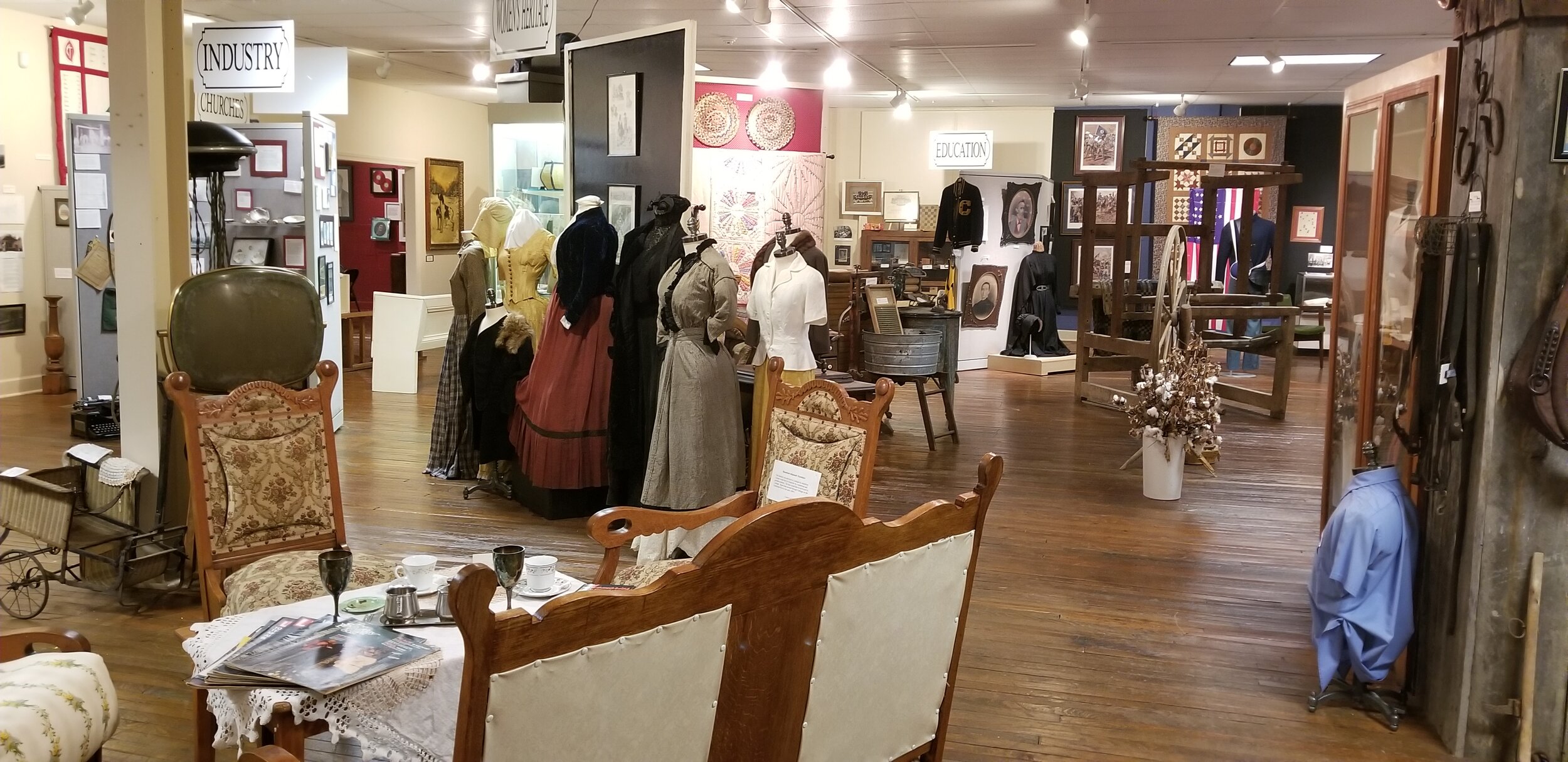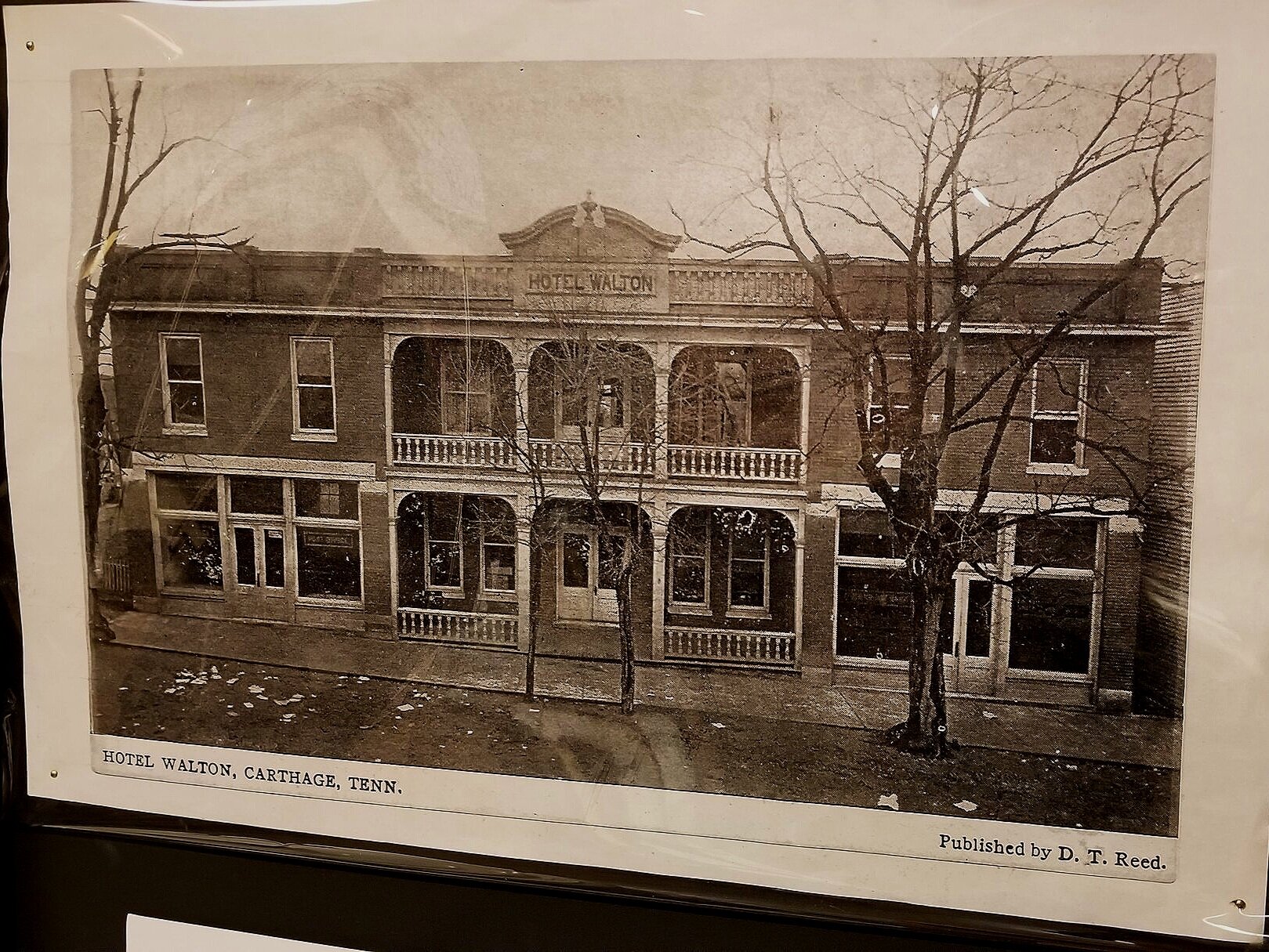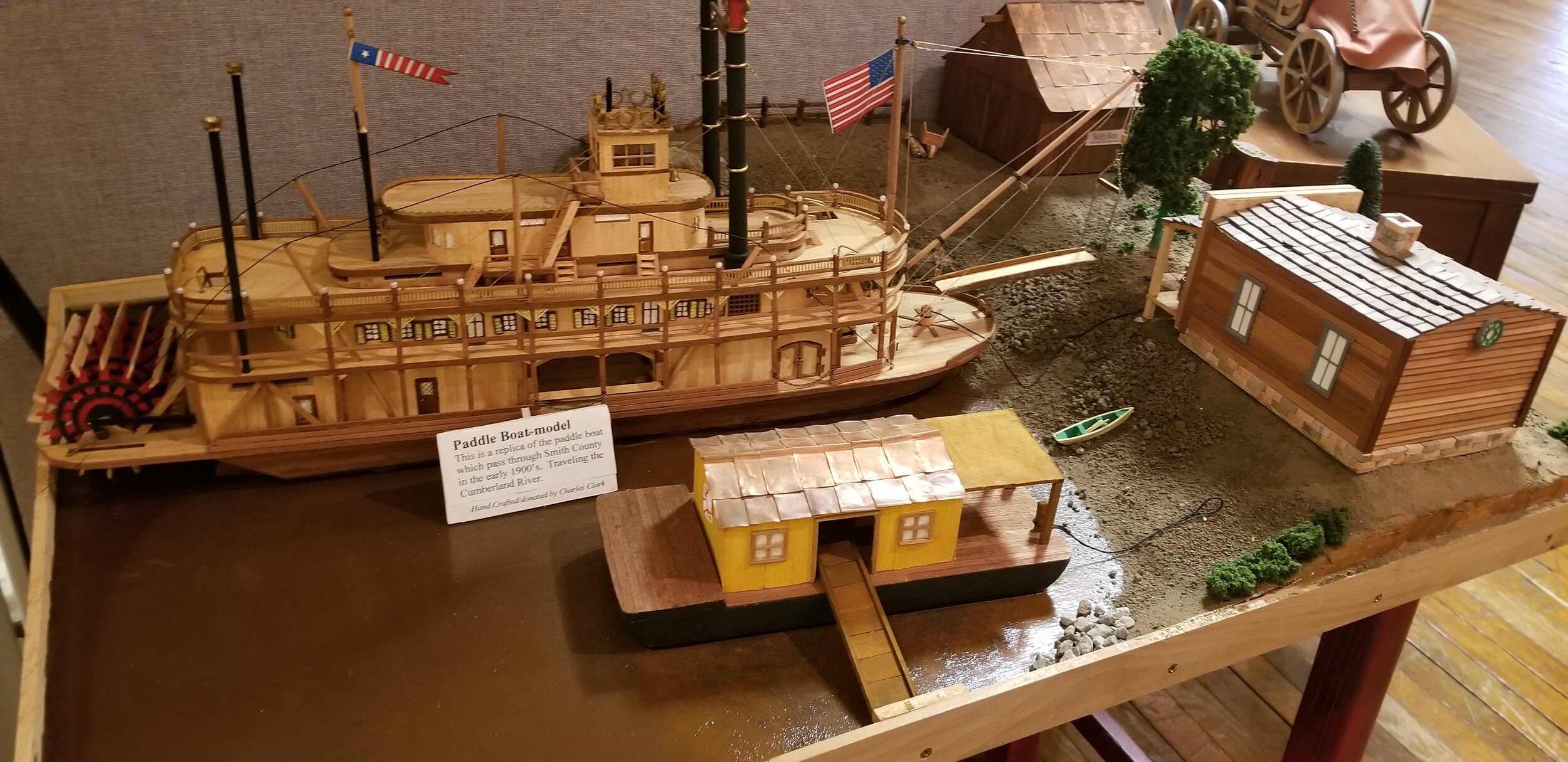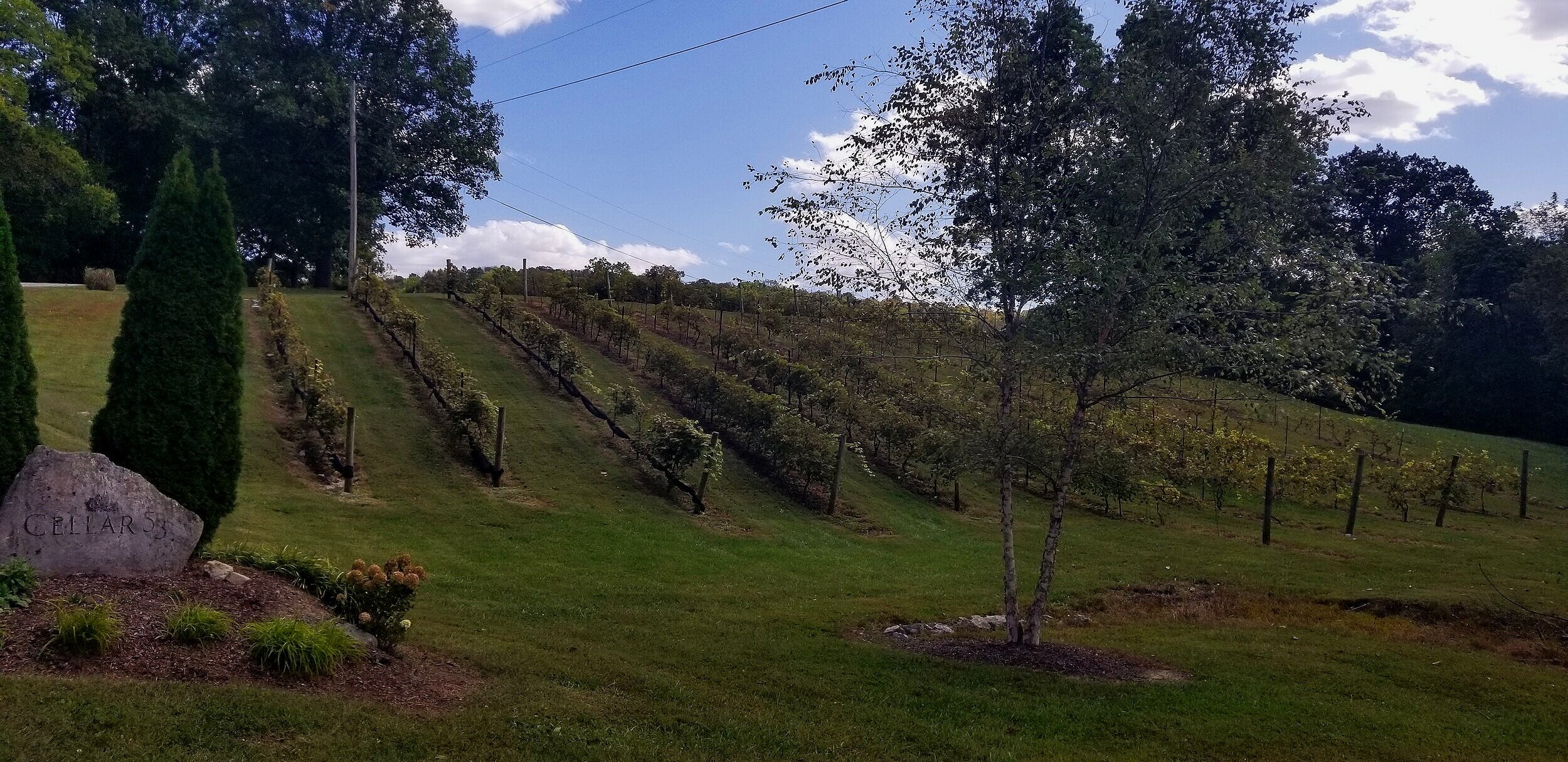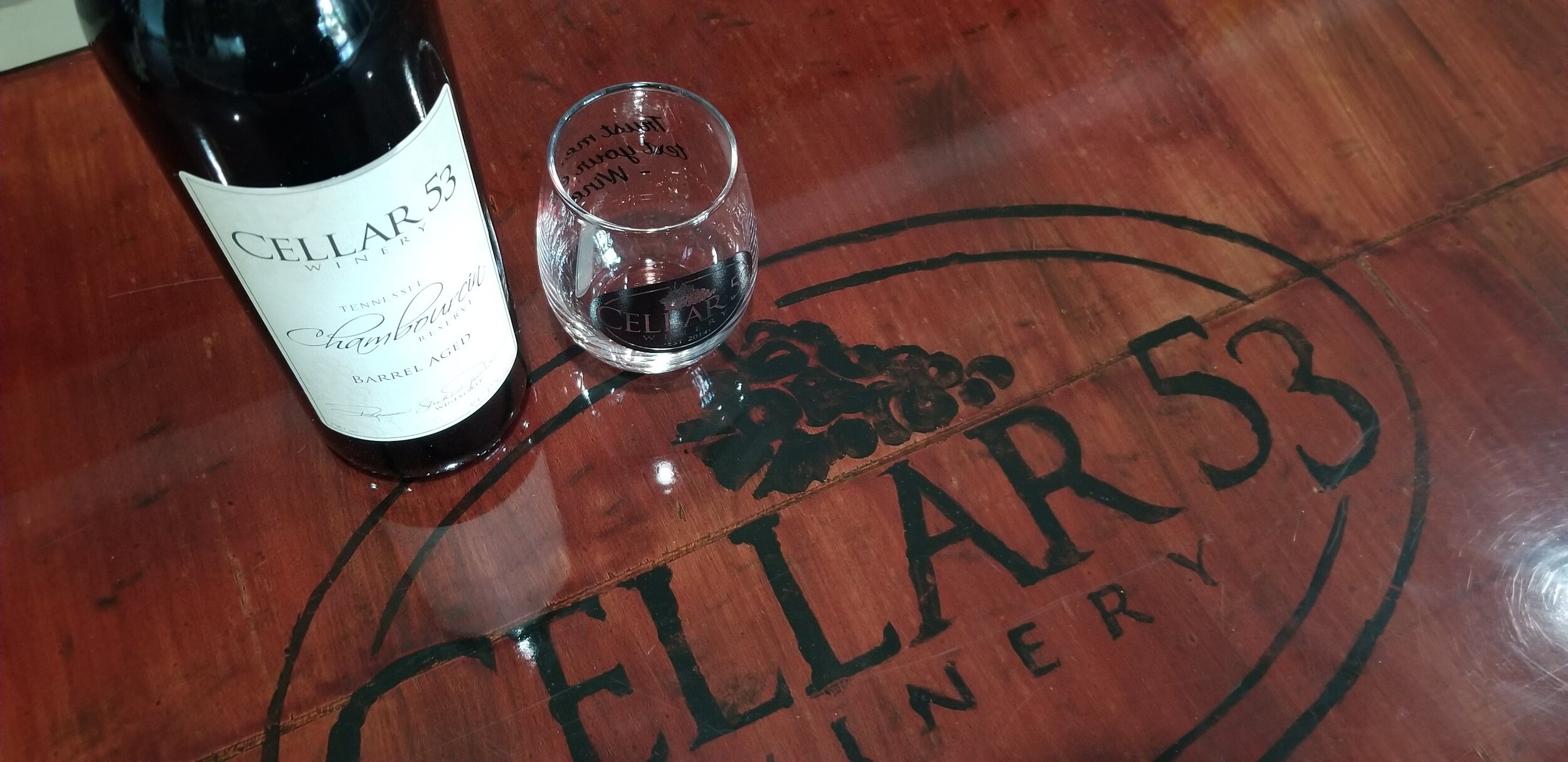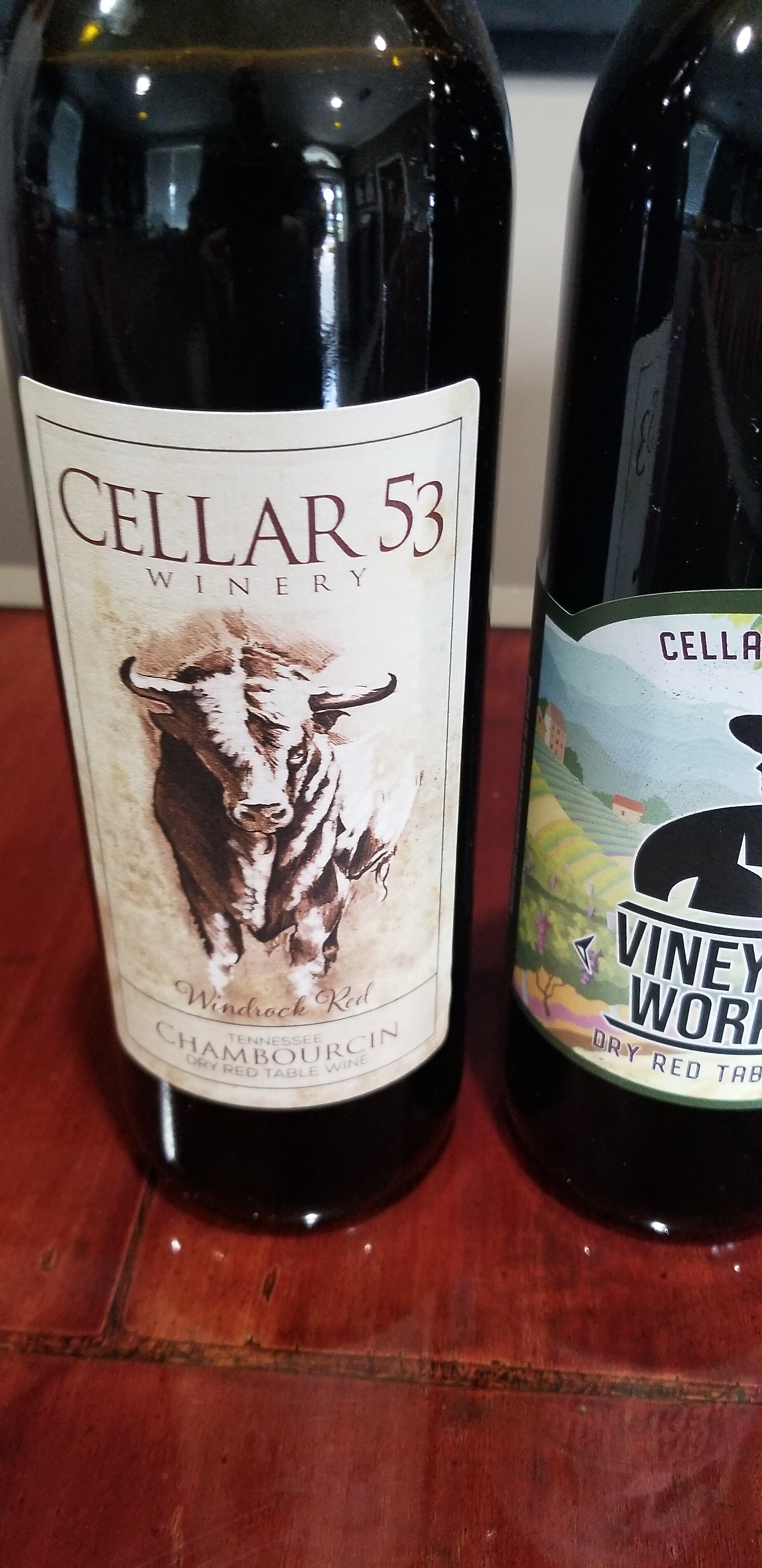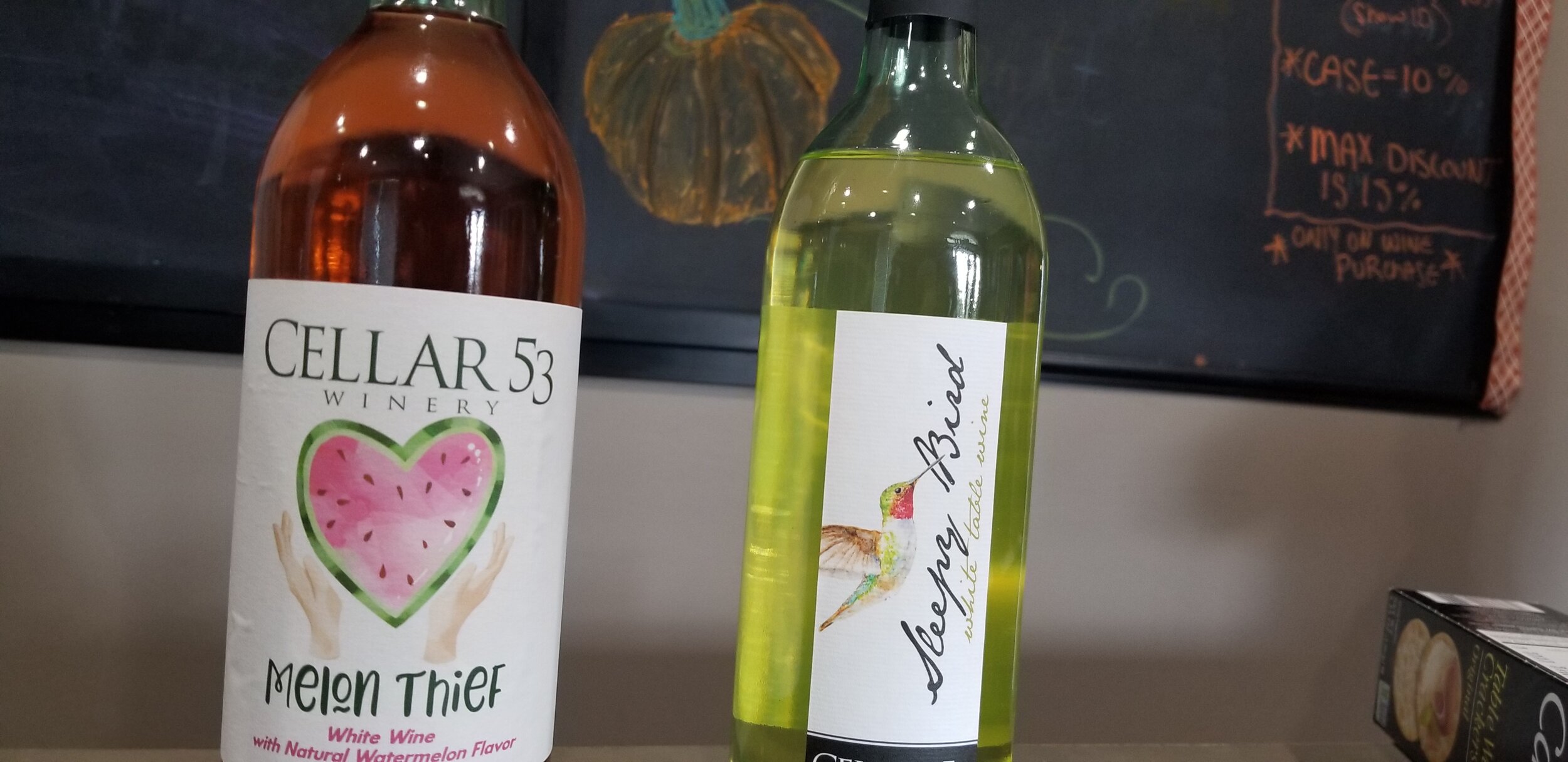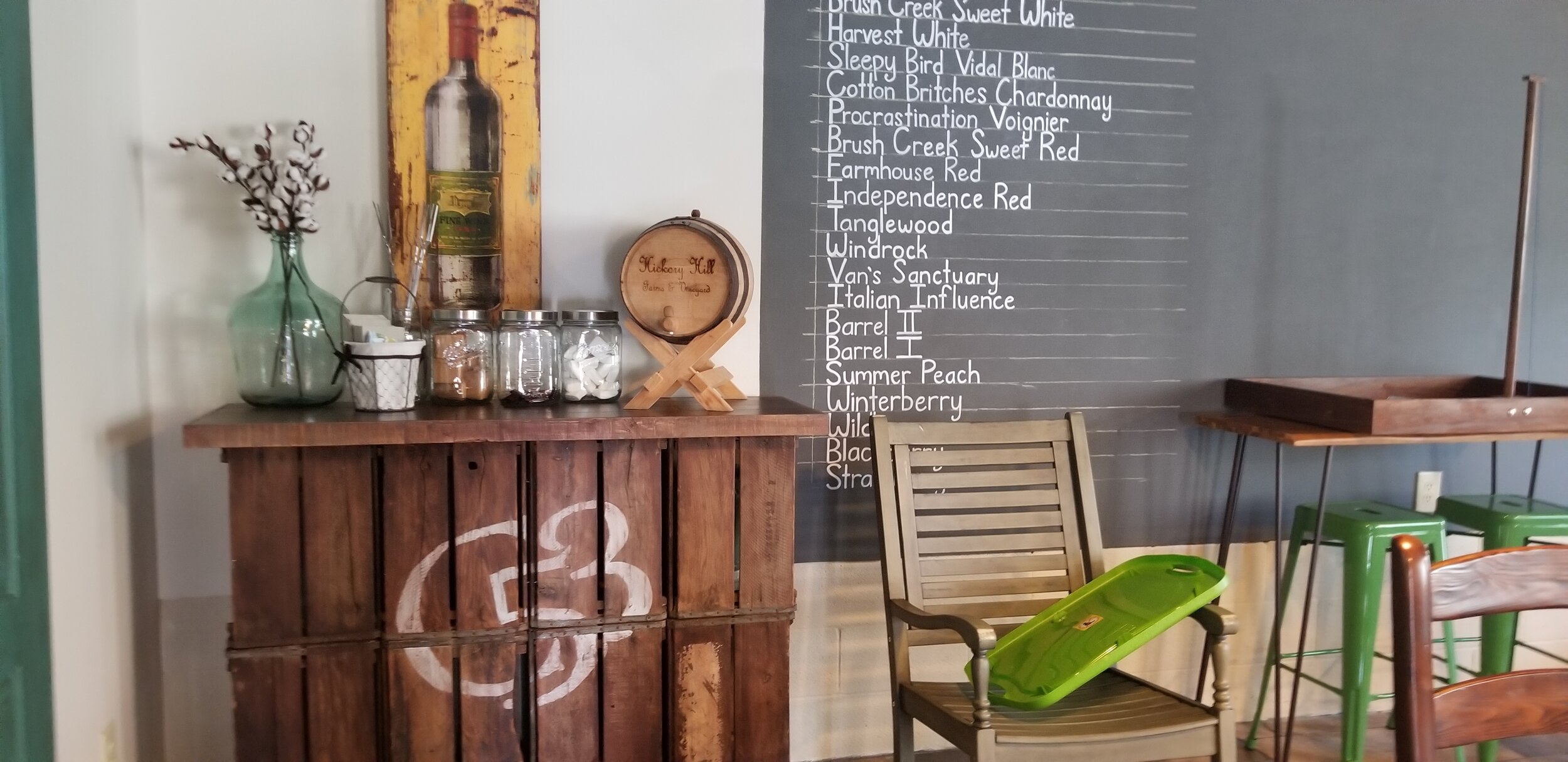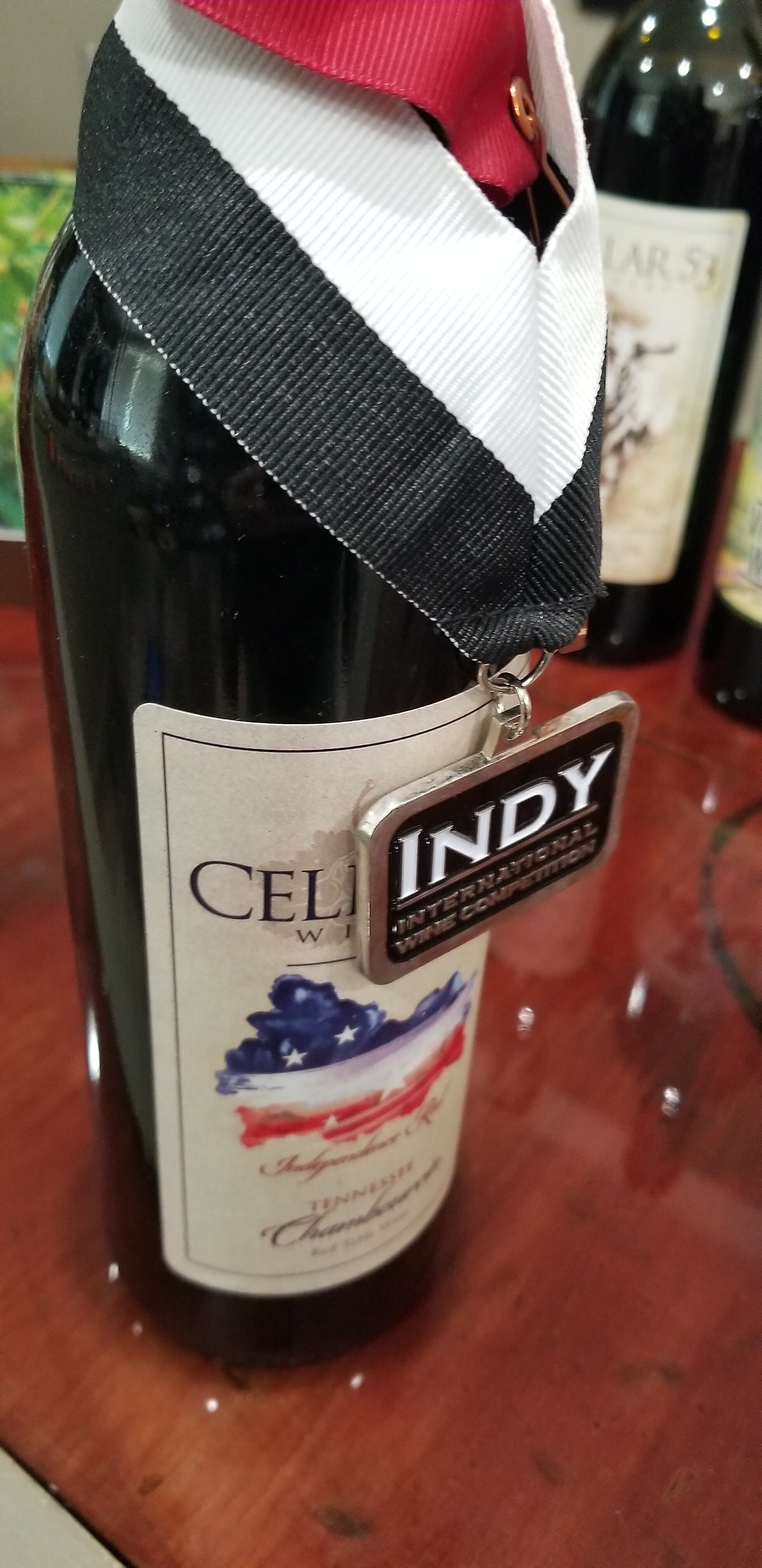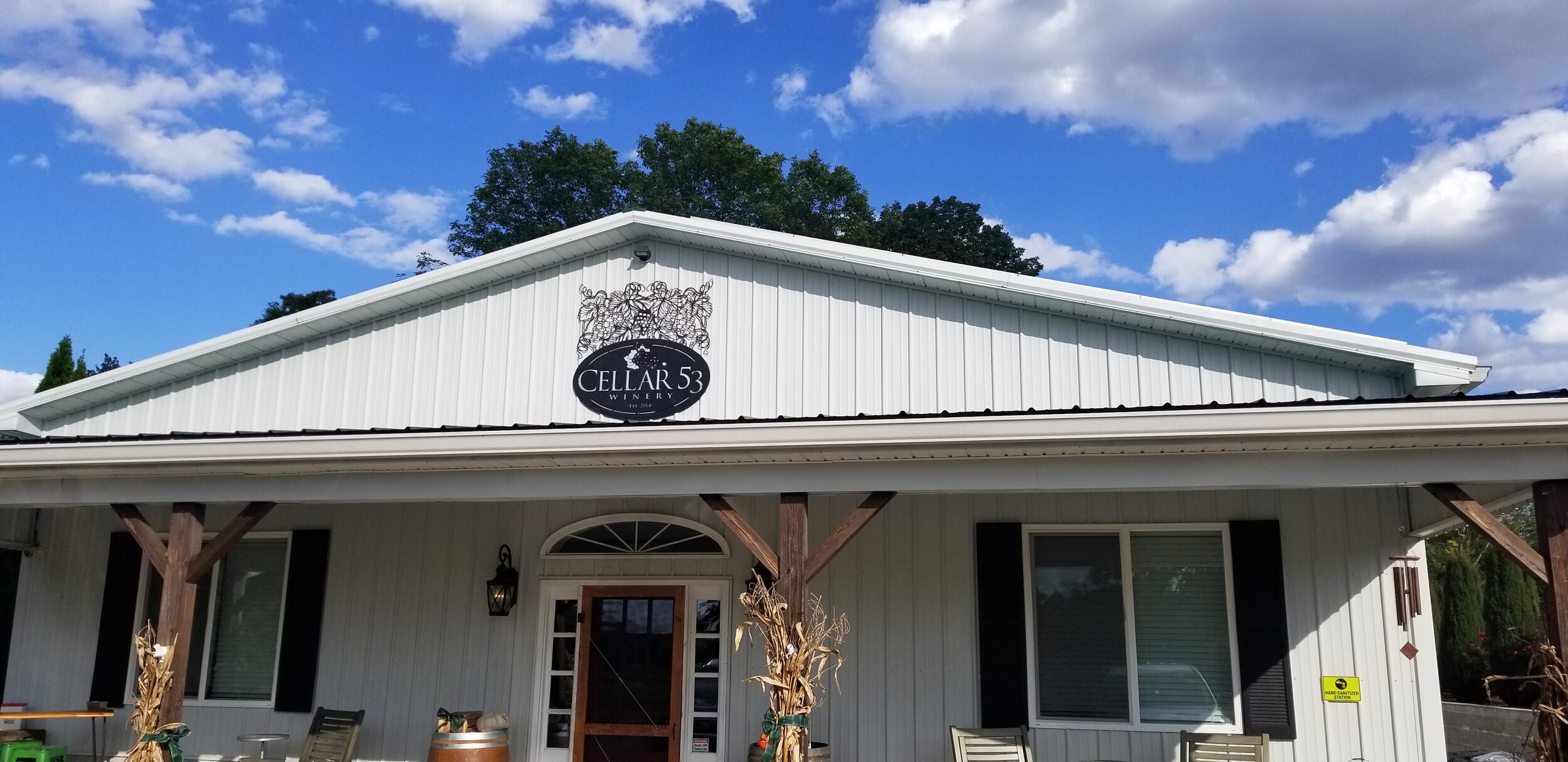Carthage, TN on the Cumberland
The historic Hotel Walton, a prominent landmark in Downtown Carthage, gets its name from a Revolutionary War soldier who settled in the area thanks to a land grant.
(During my visit to Carthage and Smith County I was a guest of the Upper Cumberland Tourism Association. All opinions expressed in this post are my own.)
On the western edge of Tennessee’s Upper Cumberland Region, the small town of Carthage wraps history, natural beauty and culinary wonders into a picturesque package that will have you wanting to return time and time again. This town of about 2500 people at the confluence of the Caney Fork and Cumberland Rivers is the County Seat of Smith County. Revolutionary War soldier William Walton settled here thanks to a land grant, eventually building a road that traversed the Cumberland Plateau east to the town of Kingston. Today U.S. 70N (and U.S. 70) follows much of the same route as the Walton Road which is now a Tennessee Historic Byway. Captain Walton’s gravesite is located in Carthage across the street from Walmart.
The Cordell Hull Bridge, opened in 1936, remains a prominent feature along the Cumberland River and Downtown Carthage.
Depending on which way you come into Carthage you may cross one of its most recognizable landmarks, the historic Cordell Hull Bridge. Opened in 1936 this now silver colored steel truss bridge underwent a multi-million-dollar restoration in the early 21st Century. To me this IS the best way to drive into town as the bridge rises more than 100 feet above the river giving you a stunning view of the nearby ridges, riverbanks, and Carthage’s historic downtown.
Exploring Downtown
The historic Smith County Courthouse captivates visitors with its Second Empire architectural style.
In the center of town sits a marvelous example of Second Empire Architecture. The old Smith County Courthouse was completed in 1879 and is on the National Register of Historic Places. It’s a great place to start a visit to Carthage as the grounds are filled with historical markers about notable residents of the county and the area’s importance during the Civil War.
The compact nature of Downtown Carthage makes it great for exploring. Historic buildings like the Walton Hotel stand out along Main Street with its two-story porches and entrance doors with brightly colored stained glass. About a block away an impressive old night deposit vault adorns an old bank building and all along Main Street bright colored canopies cover the entrances to the shops and other businesses.
You’ll find an eclectic mix of shopping and in Downtown Carthage. From boutiques like Teresa’s Gifts and #holly’s to Cumberland Cannabis and The Candy Bar, opportunities for picking up unique gifts is plentiful. And like many small American towns you’ll find a hardware and furniture stores along with some thrift shops. There’s even a spacious loft apartment you can rent out for overnight stays called “Cozy in Carthage.”
When you work up an appetite Carthage has you covered too. In the days of Captain William Walton, the river traffic and people using the Walton Road kept Carthage busy whetting the appetites of travelers. Today, Ebel’s Tavern, located in the bottom of the historic Courier Building serves as one of the most popular gathering places in town. Whether it’s cozying up to the bar, savoring a meal from the kitchen or playing a game in the back of the tavern with your friends, Ebel’s certainly knows how to draw a crowd in the evening.
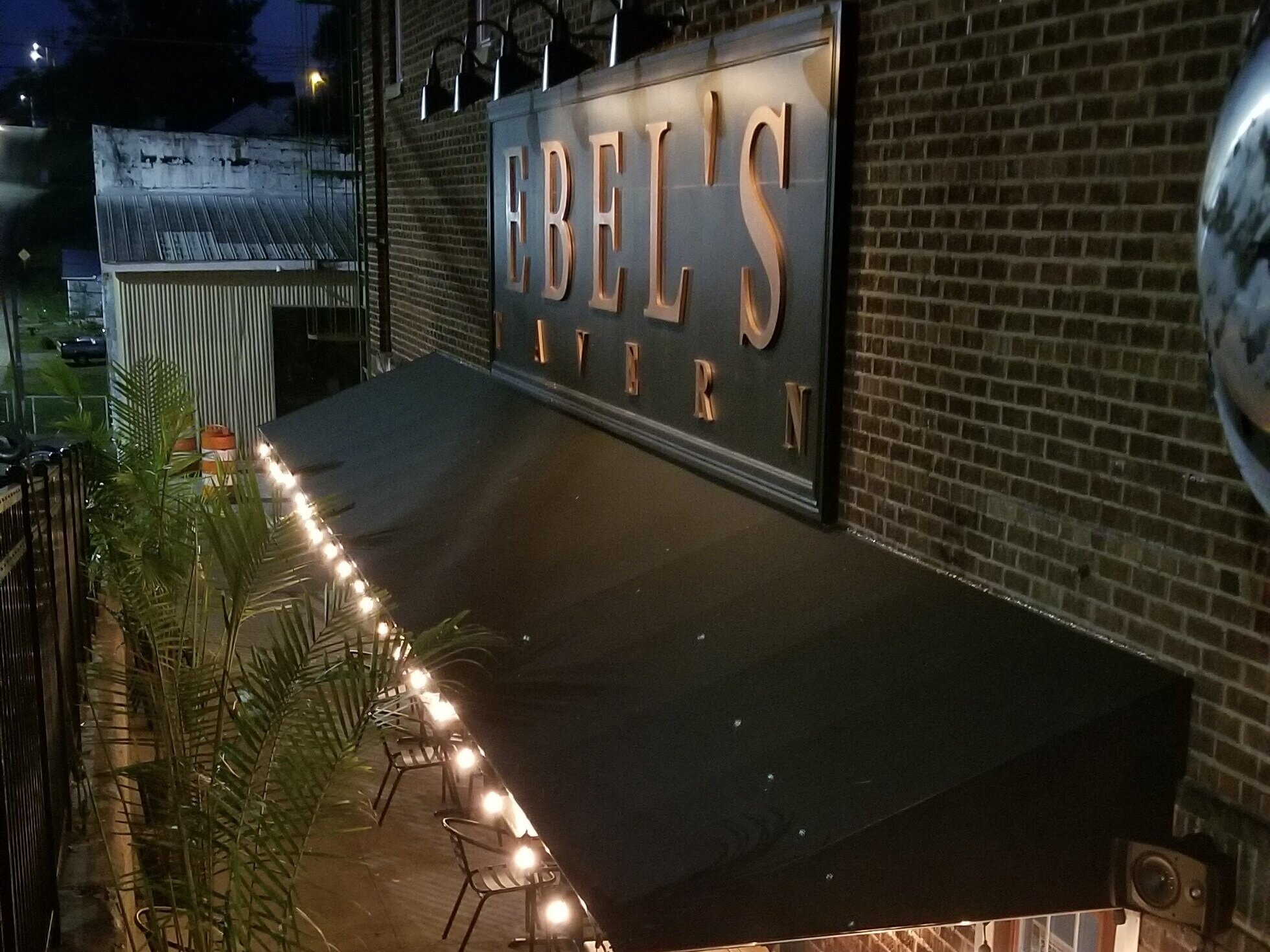
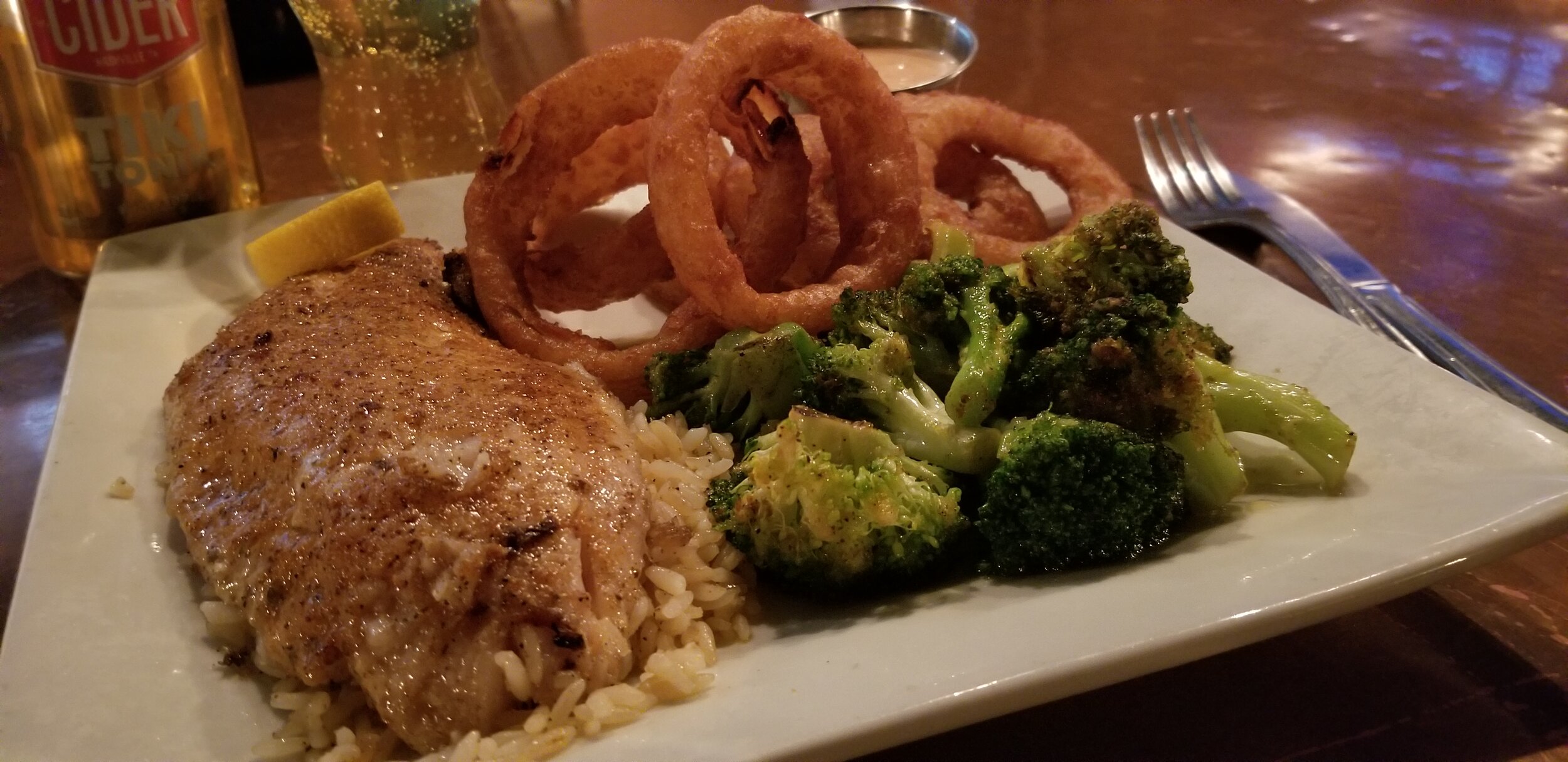
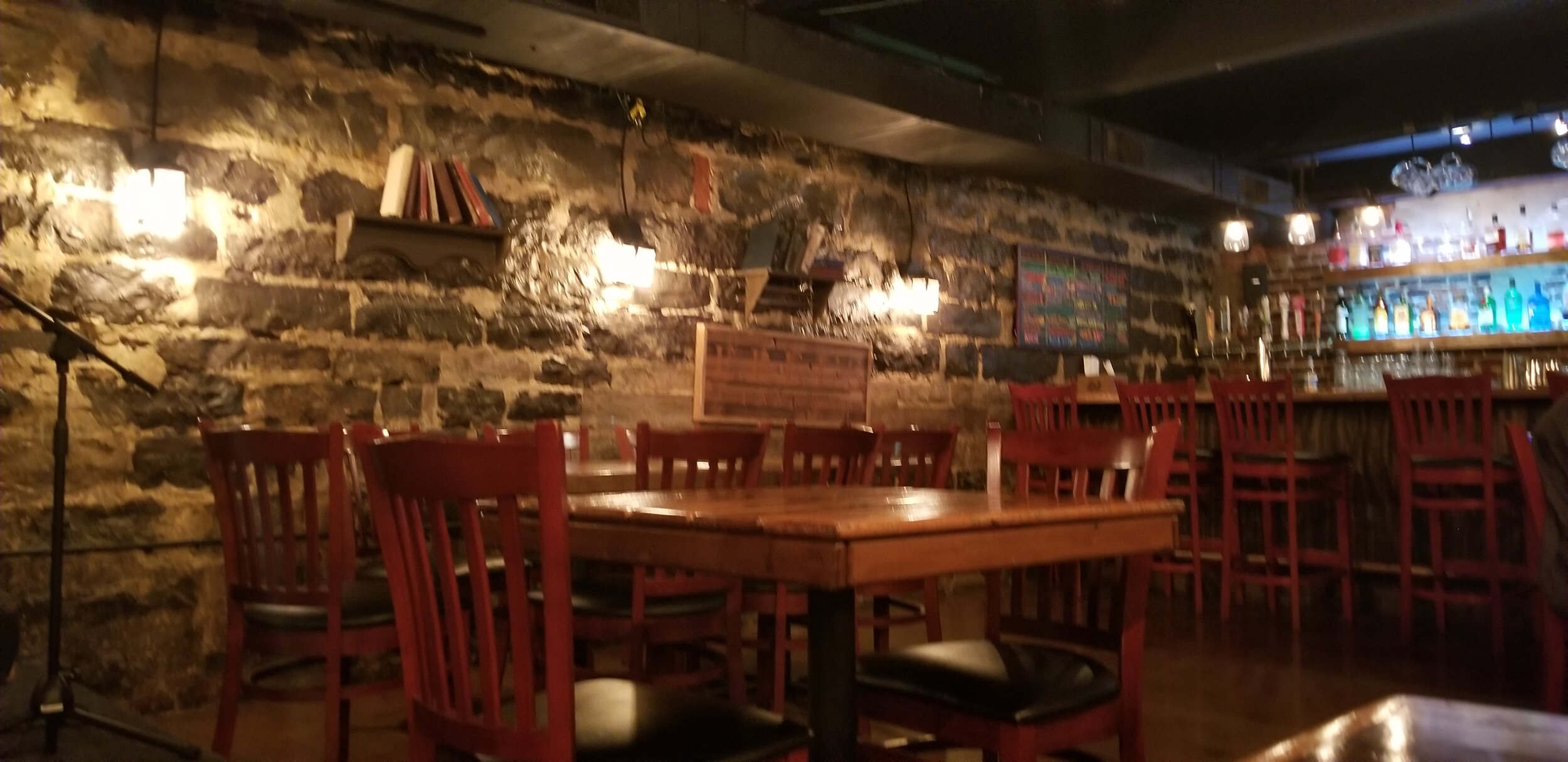
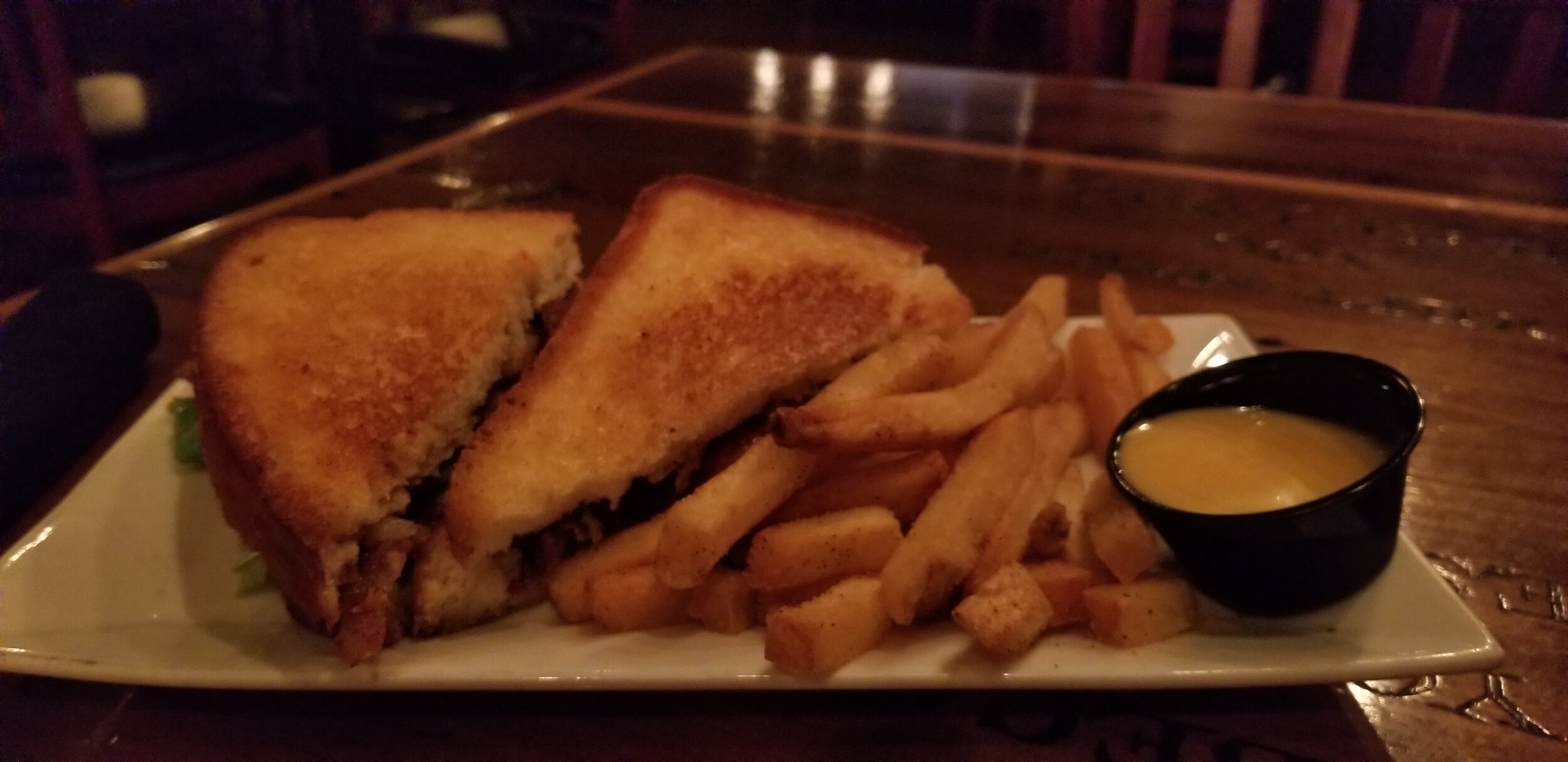
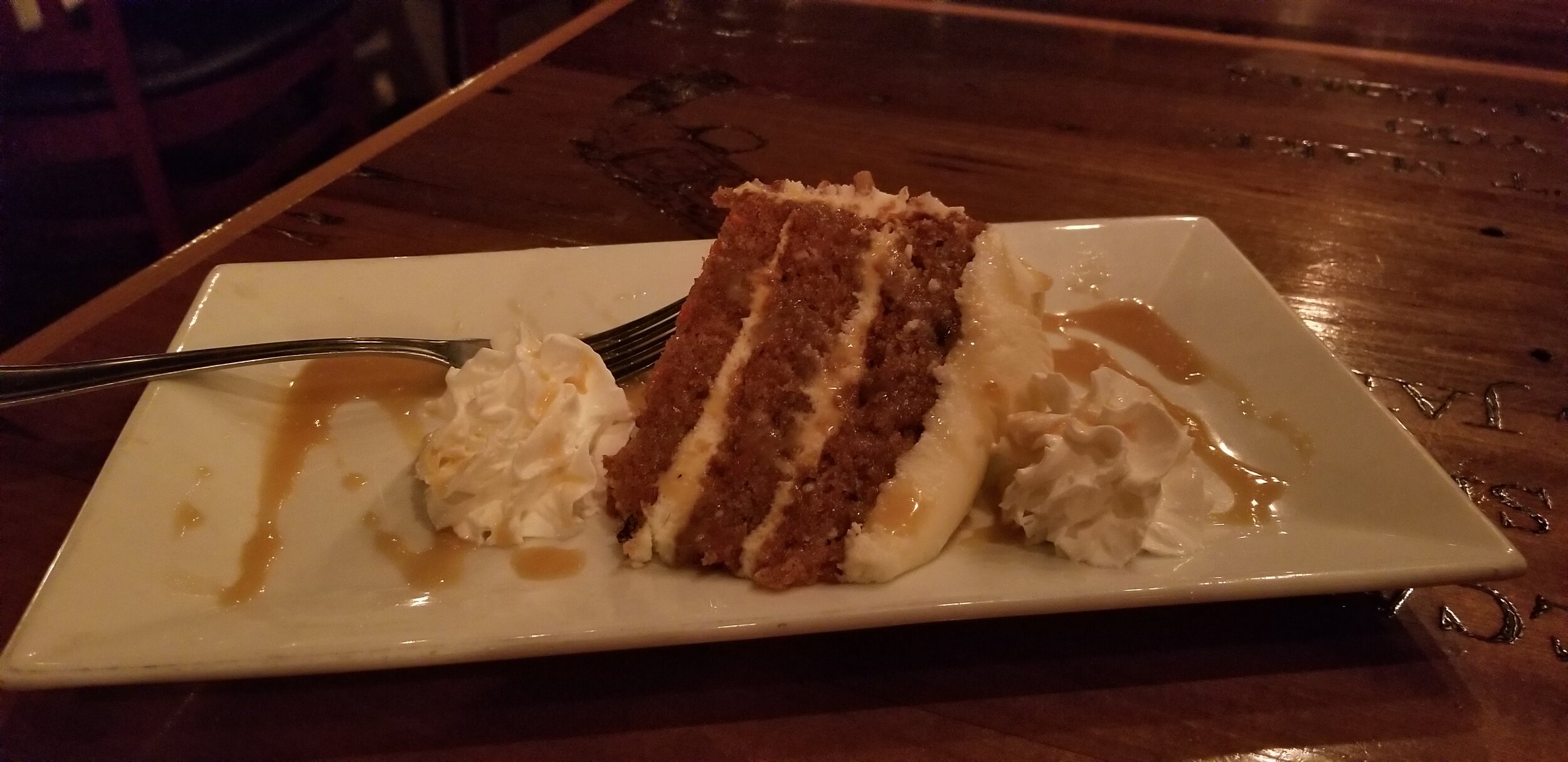
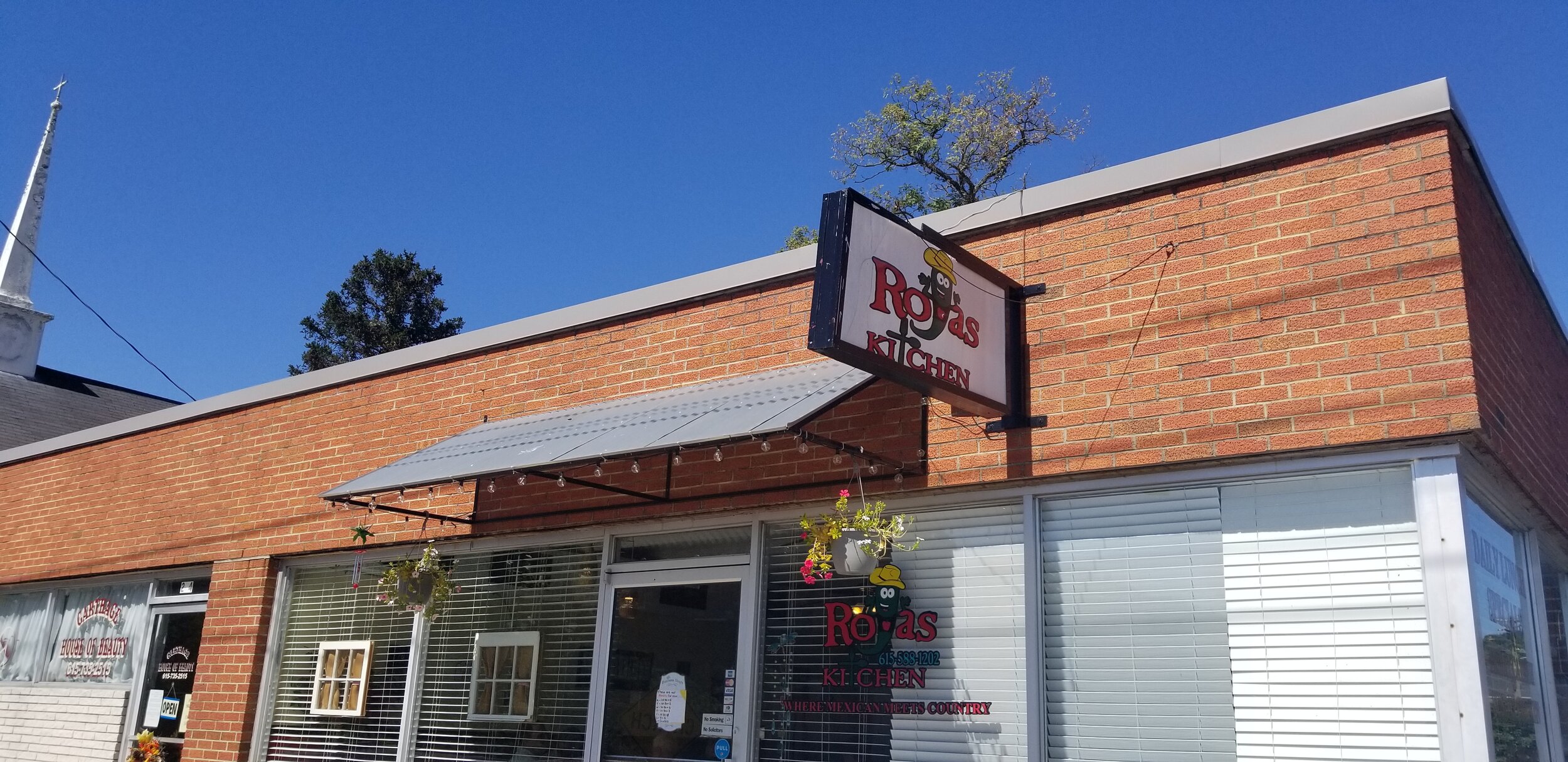
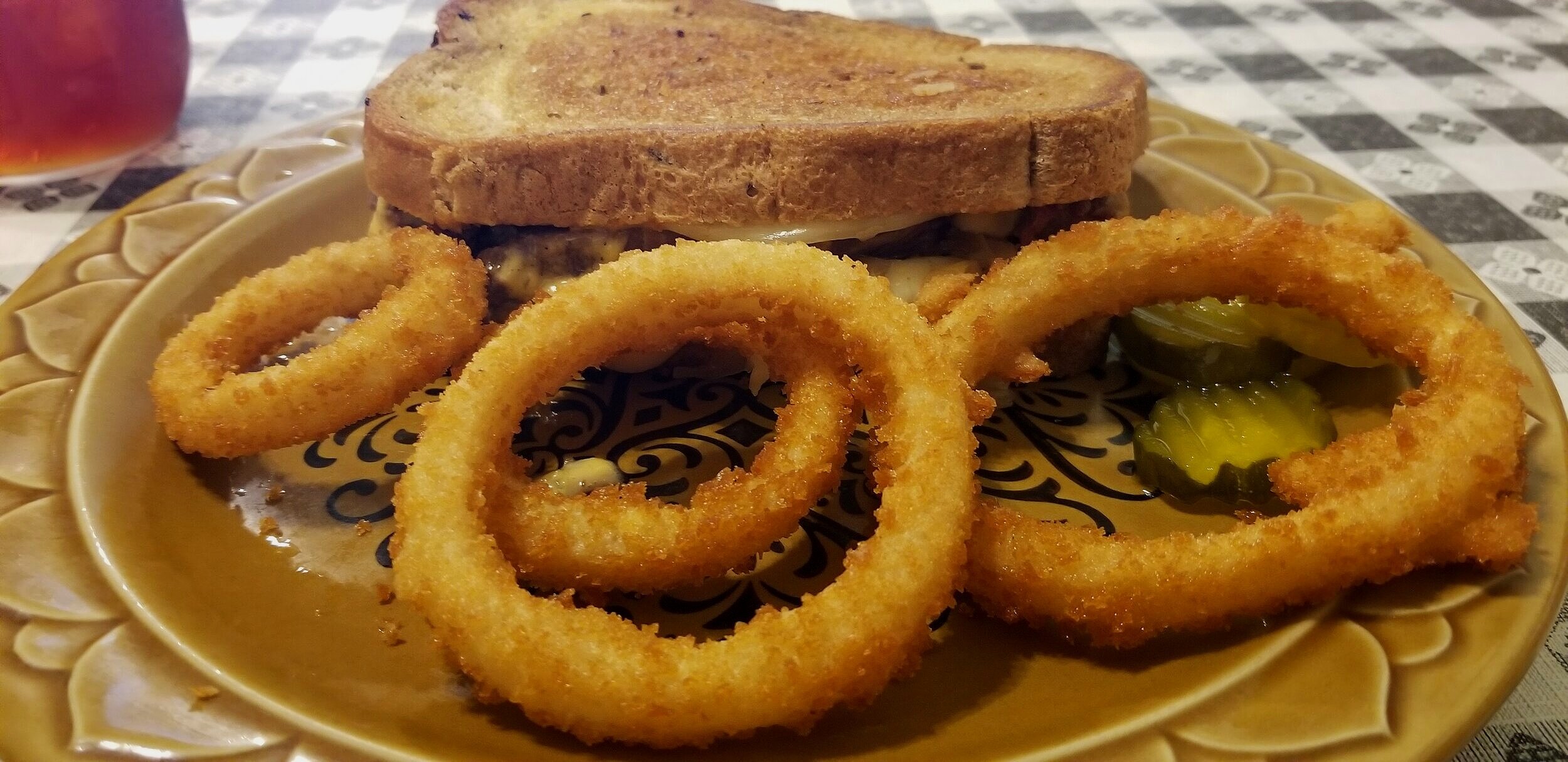
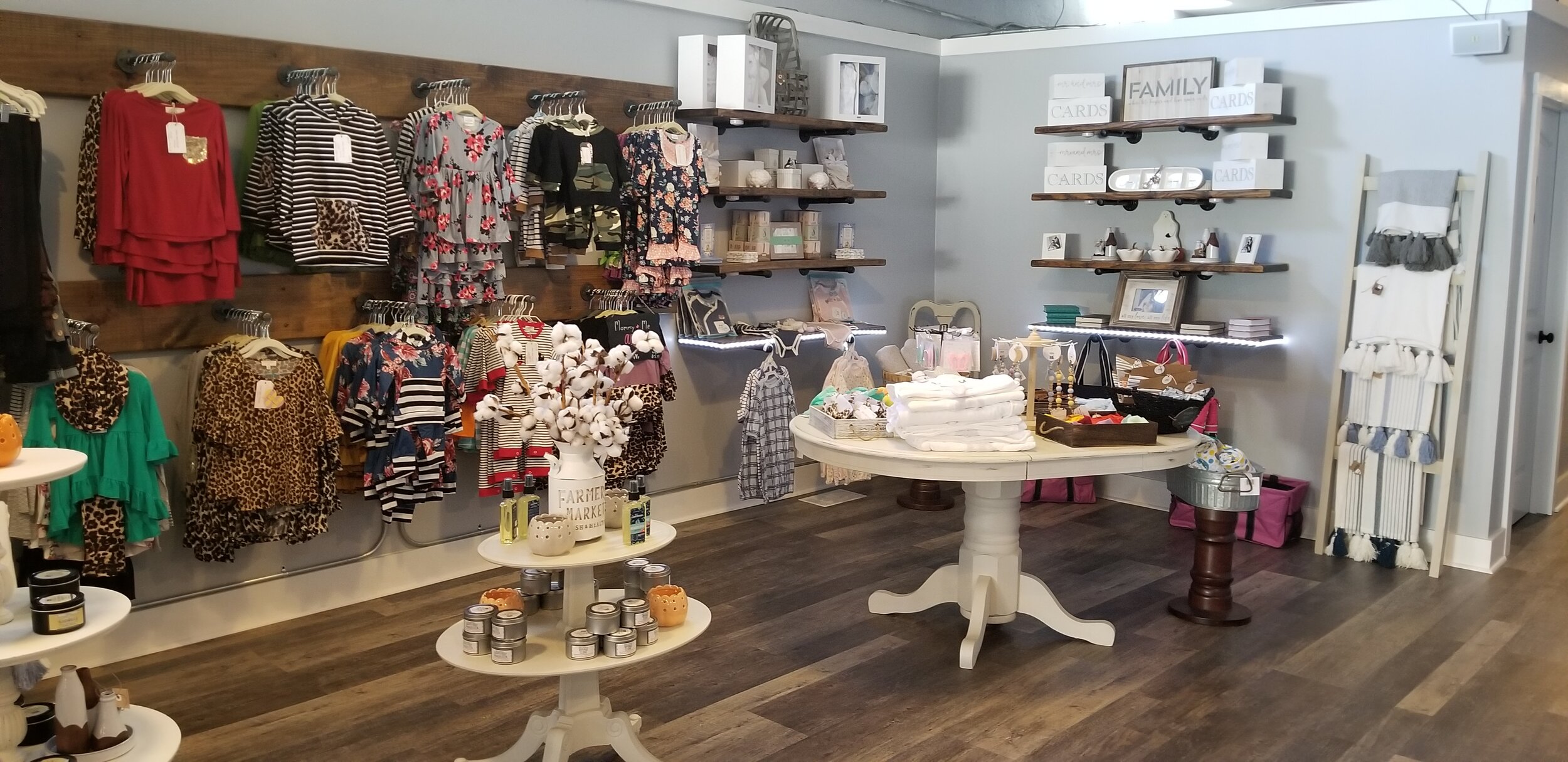
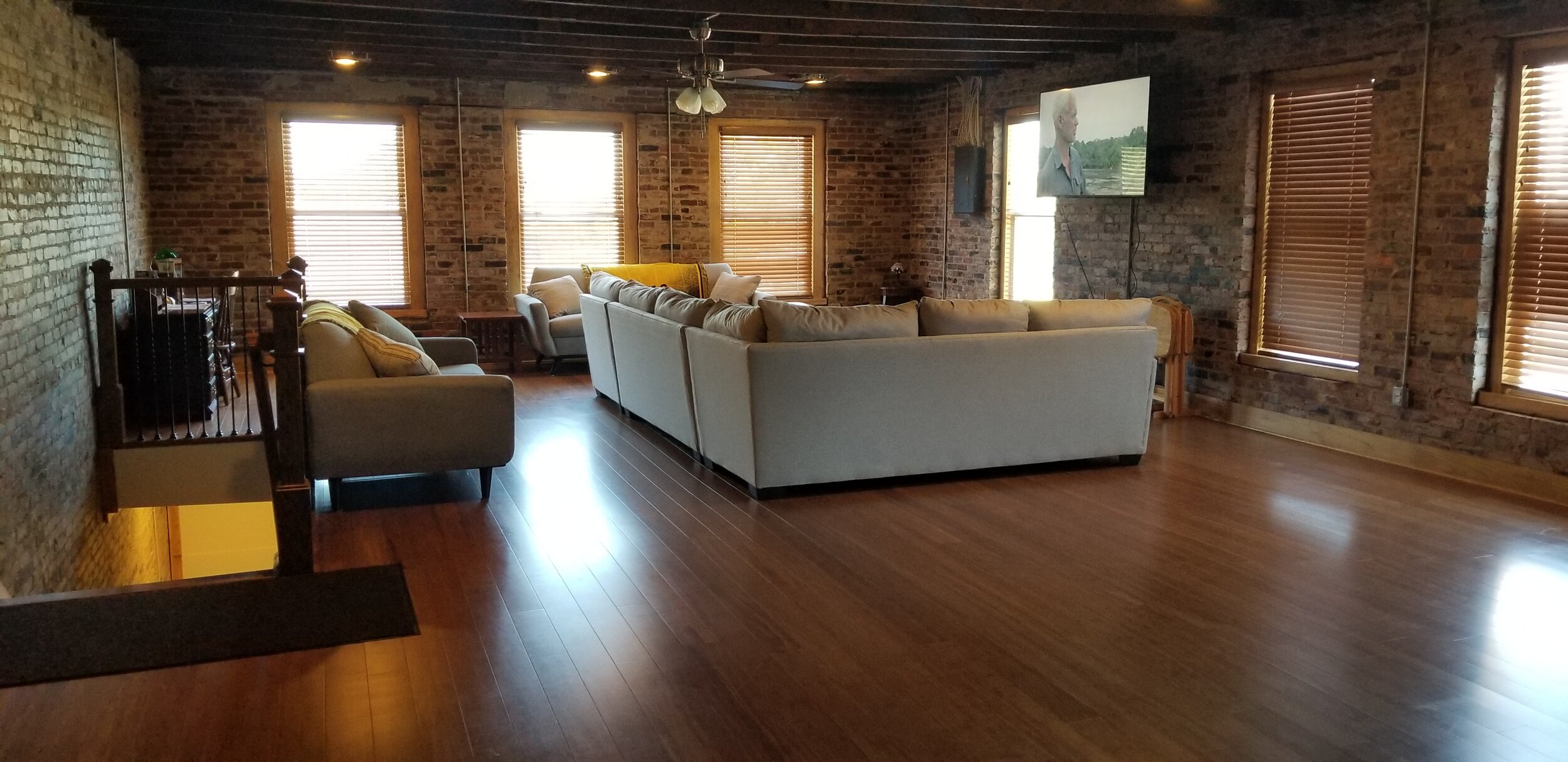
Just a block away, Rojas Kitchen serves up great country cooking, delectable sandwiches and a few dishes offering a taste of Mexico with each bite. Rojas isn’t open for dinner so be sure and catch the daily special at lunch or late in the afternoon.
Whether it’s fishing, kayaking or canoeing, the Cumberland River (and the Caney Fork, too) provide plenty of opportunities for outdoor recreation in the Carthage area.
Wandering along the Cumberland River
This structure near the banks of the Cumberland River has become an important landmark in Carthage.
It’s hard to imagine Carthage and the surrounding area without the Cumberland River. Instead of riverboats and flat boats you’re much more likely to see bass boats and kayaks in this part of the Upper Cumberland these days.
Heading out of Downtown Carthage be on the lookout for a lighthouse at the river access area. It’s an unmistakable landmark, but you would be mistaken if you thought this was a real lighthouse. With its grand staircase winding up to a small deck at the top, and what appears to be large windows for the light to shine through, the structure certainly seems like it once guided boats along the river. However, there was never any light coming from it. According to local officials the lighthouse façade covers up an old municipal water pump house. The access area at this landmark gives you great views of the Cordell Hull Bridge and the Highway 25 bridge just upstream.
About a mile upstream, the Cordell Hull Dam holds back the flow of the Cumberland River, creating a lake that stretches all the way up to Gainesboro, TN. The Army Corps of Engineers maintains the area in an around the dam, a perfect place for outdoor recreation. Got questions about where to find things along the lake and river? Then make a stop at the Visitors Center, a building with striking features that complement its natural surroundings. A few hundred yards away you’ll find a playground and picnic area as well as the Turkey Creek Nature Trail.
The area at the dam is probably the most popular spot in the area. At the parking lot, a high rock wall on one side helps give you a geological “view” of the area while a long series of stairs takes you down to the river’s edge where you are likely to see a blue heron or an occasional fisherman making his/her way upstream to see what’s biting.
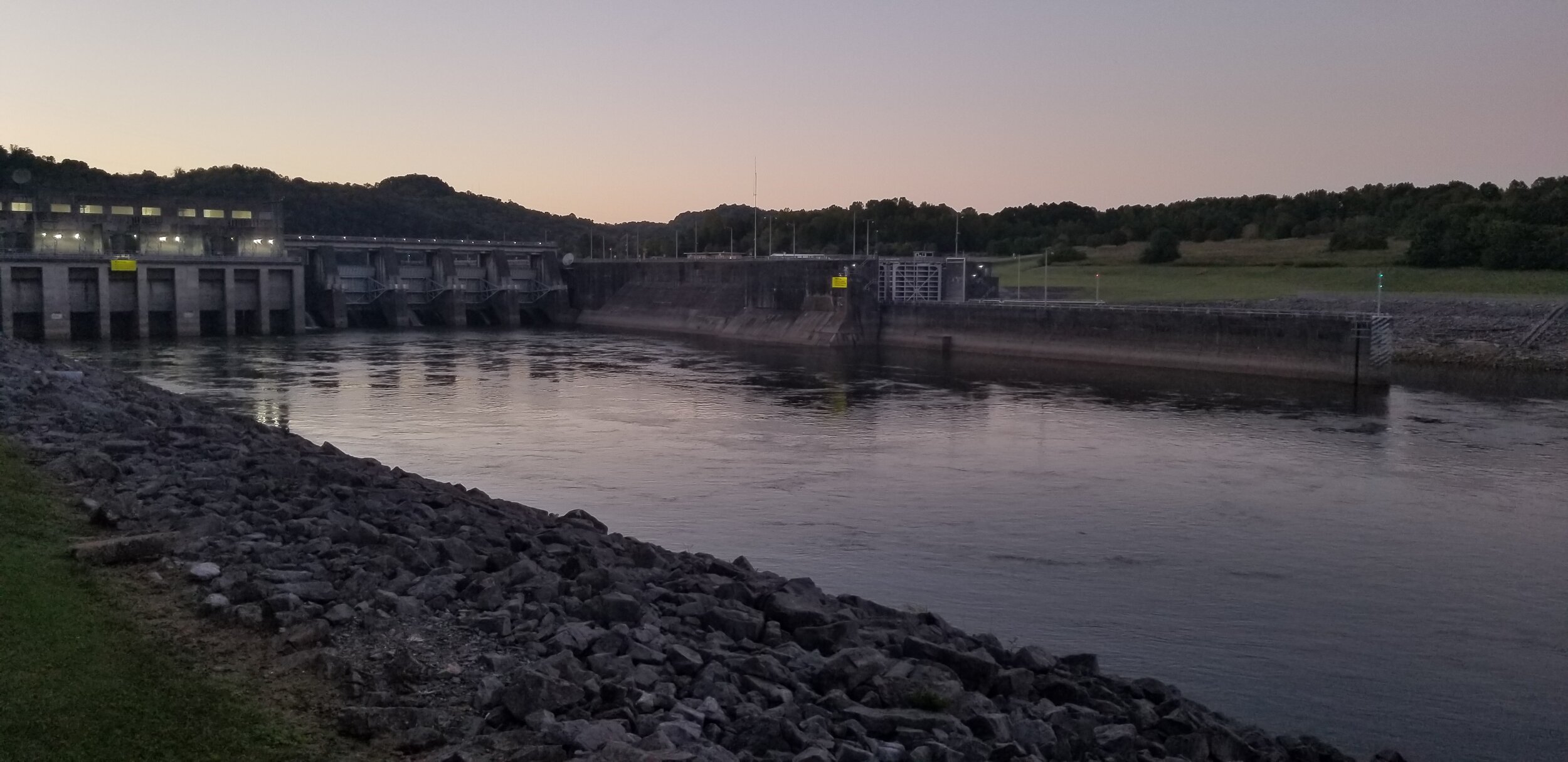
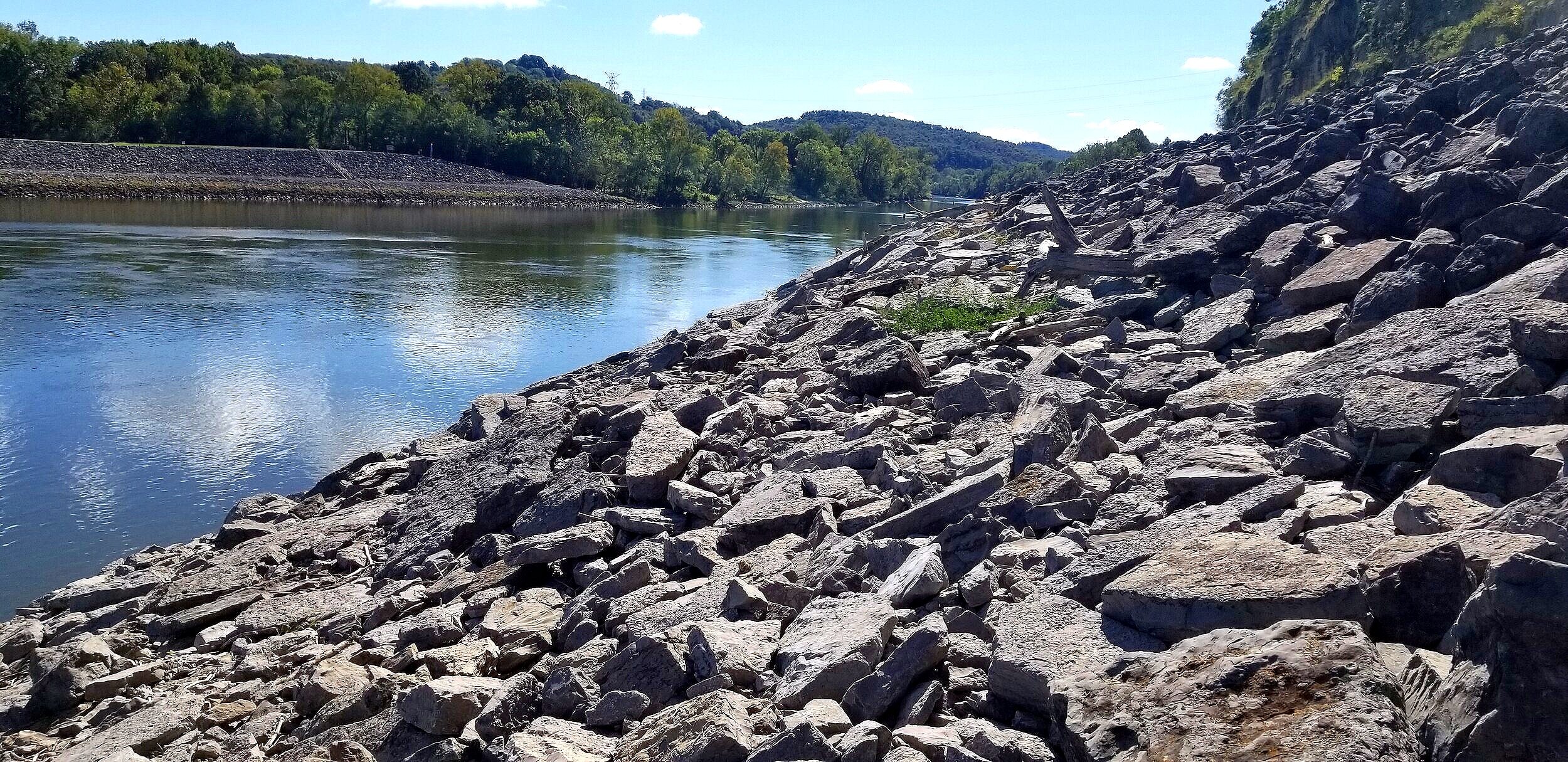
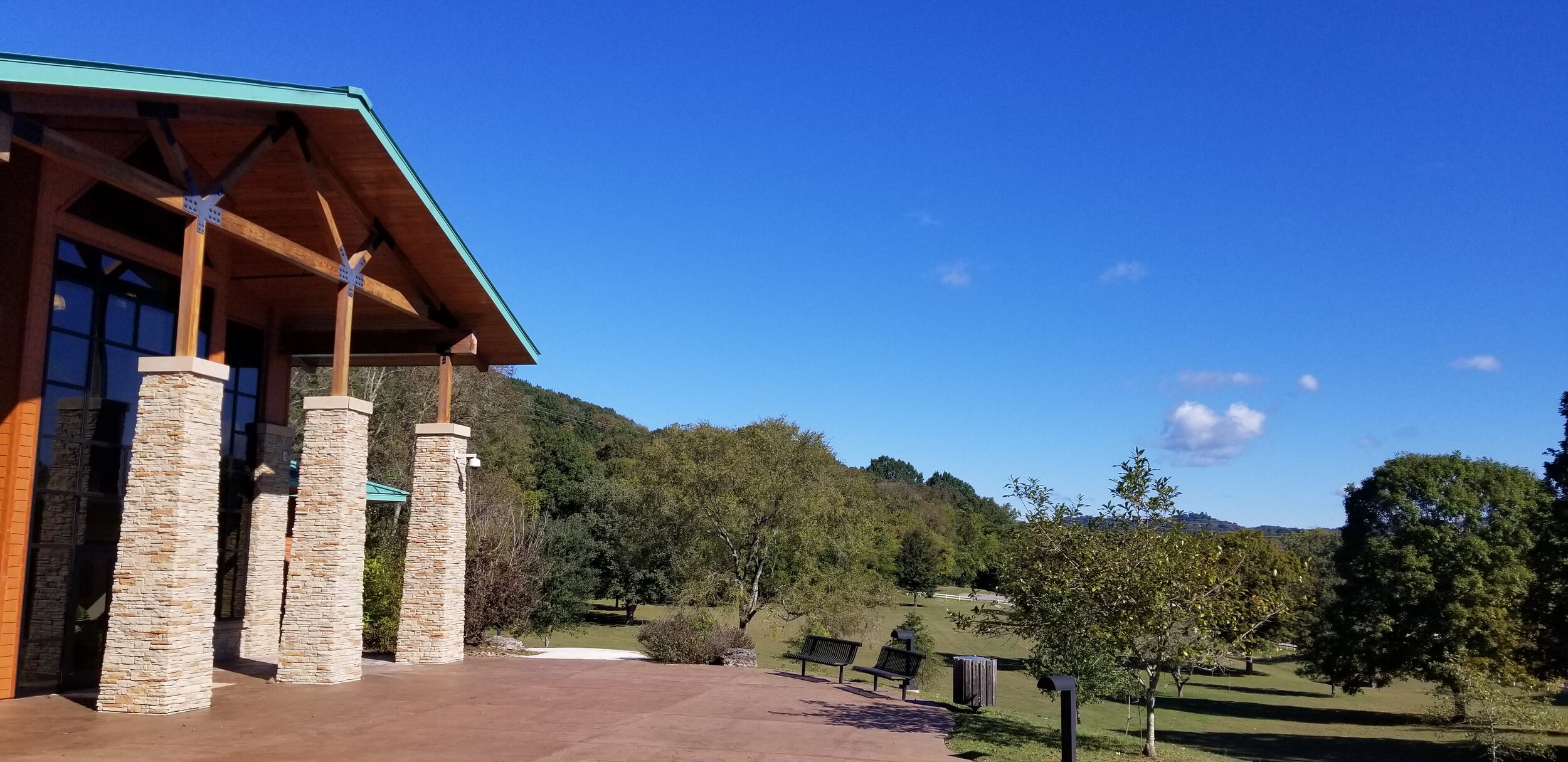
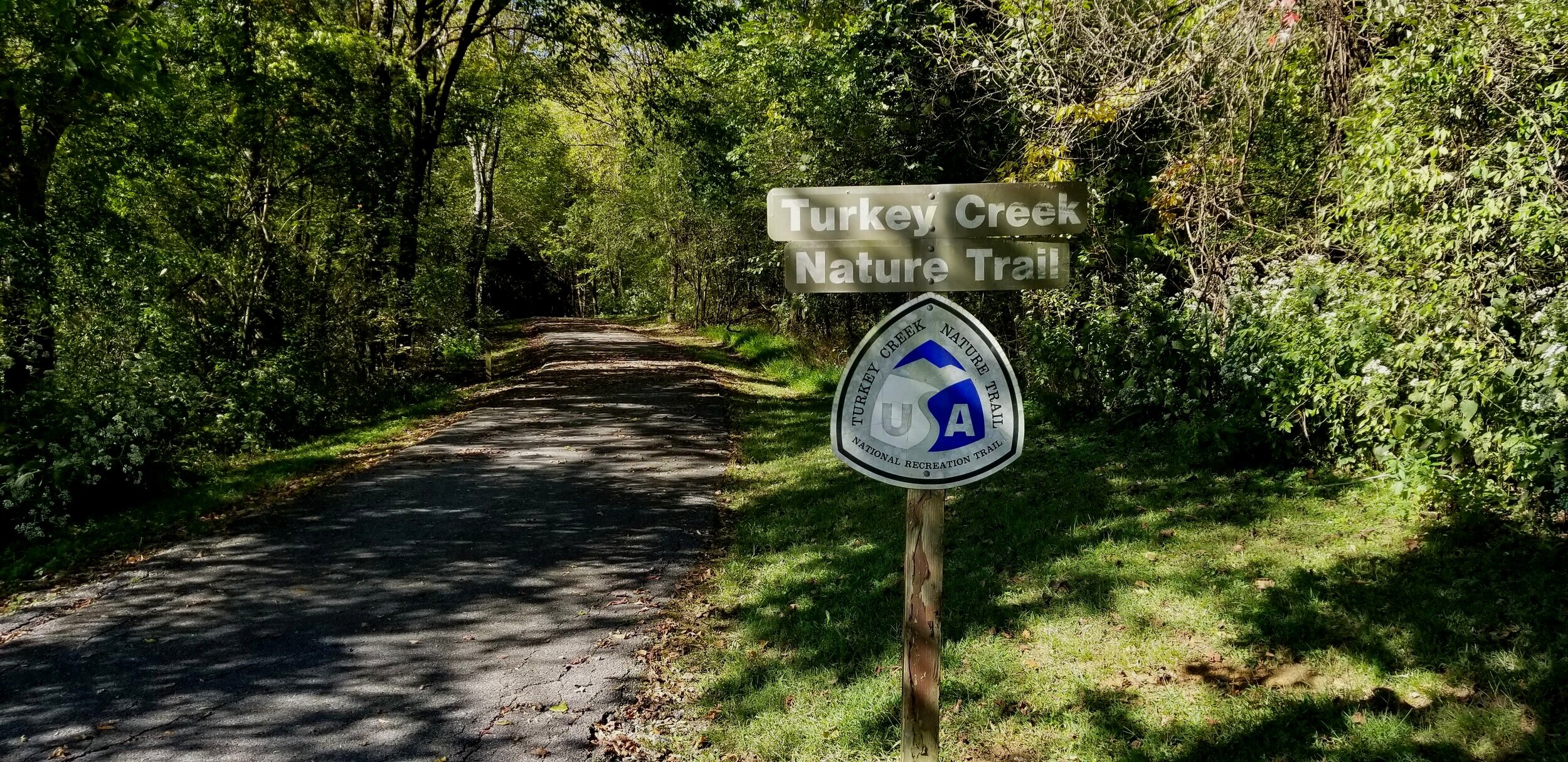
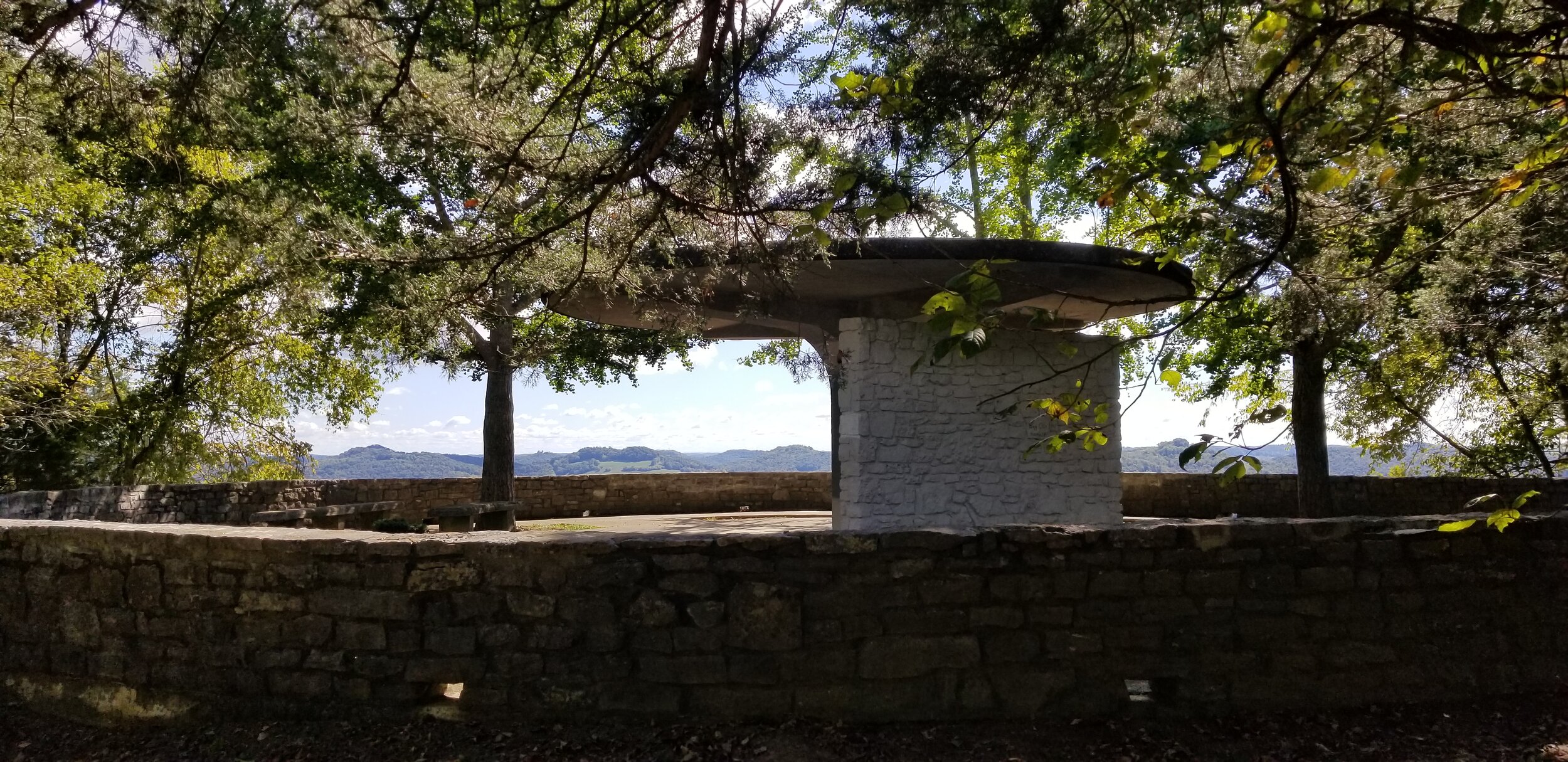
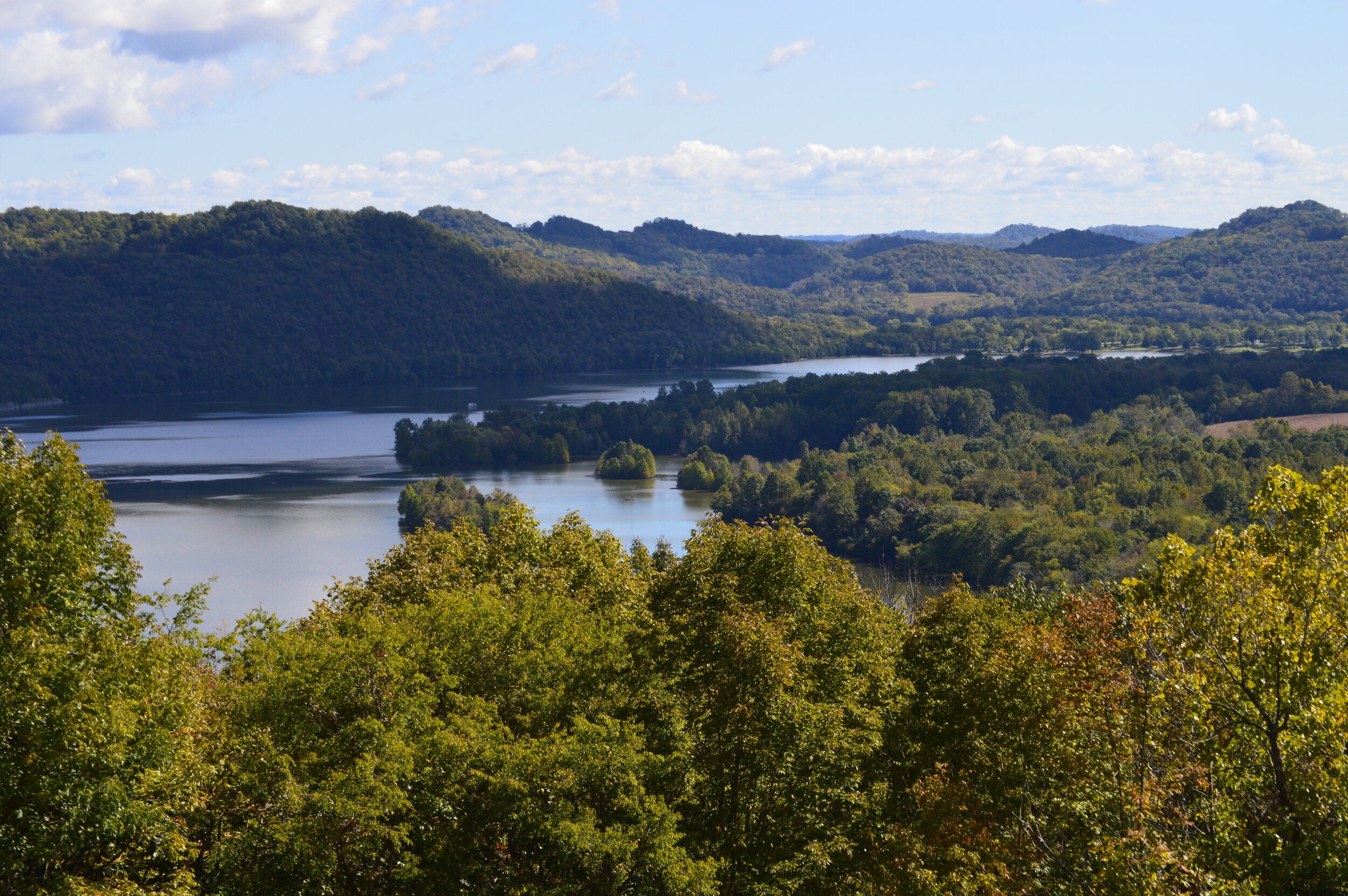
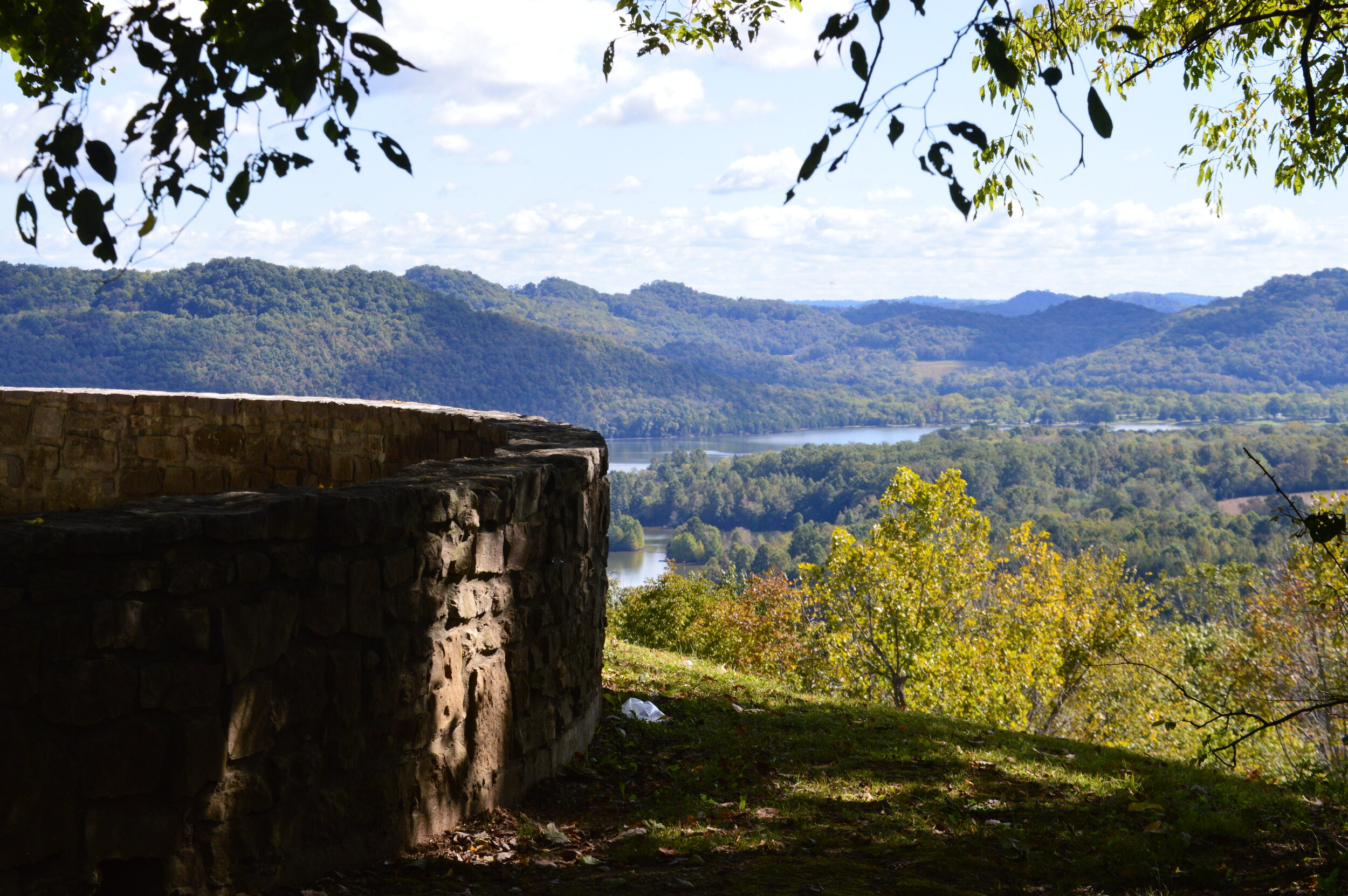
At the dam overlook, you don’t get a sense of what’s behind it as the rocky cliffs and the height of the dam make it impossible to see the lake forming behind the dam. To get a clear picture of the beauty and scope of Cordell Hull Lake you’ll want to head up to the overlook on Tater Knob. It will take you a few minutes to get there as you must leave the dam area then take a winding road up the ridge to the parking area. From there a paved trail takes you up the last stretch to a large viewing area.
Looking out toward the horizon you see the blue green waters of the lake, the densely forested areas along the shores of the lake , a couple of small islands, and the dam, which from this vantage point looks quite small. The Tater Knob Overlook is also the place where you’ll find access to the nearly 12-mile long Bearwallwer Gap Trail.
A Nobel History
Cordell Hull served as U.S. Secretary of State under FDR. He is often referred to as the “father” of the United Nations. He was awarded the Nobel Peace Prize in 1945.
I’m not sure there’s a town as small as Carthage, TN that can boast being the home of two Nobel Peace Prize winners, but this small Middle Tennessee town has that as one of its claims to fame. The first Nobel Peace Prize winner from Carthage was Cordell Hull, a name you see all over the area. He was a U.S. Secretary of State who became known as the “father” of the United Nations. The home he lived in while in Carthage is on Main Street just a short distance from the beautiful and historic Carthage United Methodist Church.
Albert Gore, Jr. , a former U.S. Senator and U.S. Vice-President was awarded the Nobel Peace Prize in 2007 for his work on behalf of the environment. He grew up in Carthage where his family has deep roots. His father, Albert Gore, Sr. was also a U.S. Senator who was a champion of the legislation that helped create America’s interstate system.
The Smith County Heritage Museum tells the stories of these two men and many other notable people from the area as well as events that shaped the region’s culture and heritage. People who watched Ken Burns, “Country Music” documentary series learned about DeFord Bailey, the first African-American to be introduced on the Grand Ole Opry. He was born in Smith County.
The Jere Mitchell ferry ran across the Cumberland River for more than 70 years. The ruins of this relic still sit on the banks of the river in Rome.
Another interesting story told in the museum is of the “Jere Mitchell” a ferry that ran across the Cumberland River for more than 70 years. After learning the story and enjoying the rest of the exhibits you’ll want to head west of town to the community of Rome where you can see the ruins of this historic ferry and learn why this spot was important during the Civil War. Just go to the river access area below the green bridge along U.S. 70N.
This renovated Train Depot in South Carthage sits prominently beside the main highway coming in from I-40.
Trains, trails and trellises
On a hill above the Caney Fork River in South Carthage, a quaint train depot sits beside one of the rail lines that used to run through the area. The County is hoping that one day you’ll be able to rent out equipment to kayak or canoe there to enjoy the waters of the river down the hill. The depot building is beside the county’s sports park and fairgrounds. Part of the old rail line in the area is now a trail great for a relaxing walk.
If a glass of wine is your idea of relaxing, there is a local winery just a few miles out of Carthage in the Brush Creek community. On my visit to the area in 2020, Rebecca Paschal (one of the owners) and her son gave me a tour. Cellar 53 is tucked away behind a subdivision. It started as a vineyard on a family farm but eventually grew into a boutique winery.
Today, the Paschal family produces a wide variety of award winning wines making it well worth the short drive from the Interstate. Cellar 53 has limited hours for tasting and shopping so be sure and check out their website cellar53winery.com before making the trip.
Learn more about ways to experience Smith County at visitsmithcountytn.com. Then be sure and check out more things to do in the UC at uppercumberland.org.








